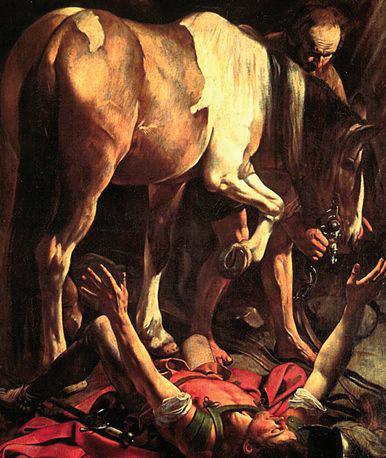
Getting to know St Paul
His life, his journey, his letters - Vista 2-3


His life, his journey, his letters - Vista 2-3


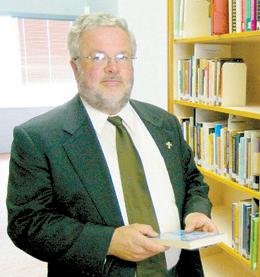
Testing for autism before birth invites an obvious question: what will for autism before birth invites an obvious what will happen to the person designated by doctors to be autistic? Perth bioethicist to the person doctors to be autistic? Perth bioethicist Fr Joe Parkinson spells out some of the darker consequences in this latest Fr Parkinson out some of the darker consequences in this latest fine-tuning of the Culture of Death. ne-tuning of the Culture of Death.
Pages 6-7

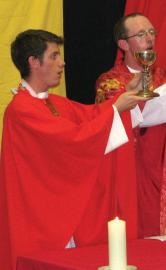
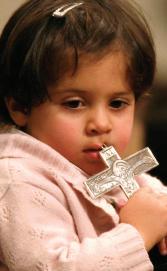
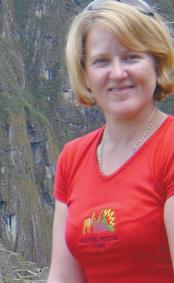
Francis-Xavier Bianchi
1743-1815
feast – January 31
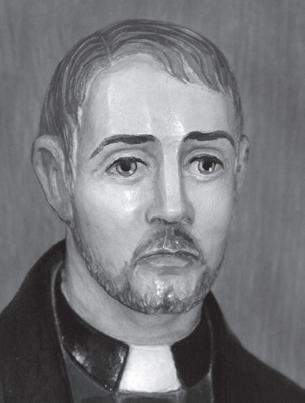

Born in Sicily, he was educated at Naples and wanted to enter religious life, despite his father’s opposition. But he persevered and entered the Congregation of Clerks Regular of St. Paul, or Barnabites, though the conflict prompted a long illness. He was ordained in 1797, serving as superior of two colleges for 15 years and in other posts. More and more he exercised his priesthood by hearing confessions, and his health was affected. He was seen as a living saint; one miracle attributed to him was stopping the flow of lava from an eruption of Mount Vesuvius in 1805.
Saints for Today
98.5 Sonshine FM - Archbishop Hickey Australian Day Citizenship Ceremony, Perth - Fr Brian O’Loughlin VG
FEBRUARY
1 Installation of Parish Priest, LockridgeArchbishop Hickey Chinese New Year Mass, ComoArchbishop Hickey
Join with him
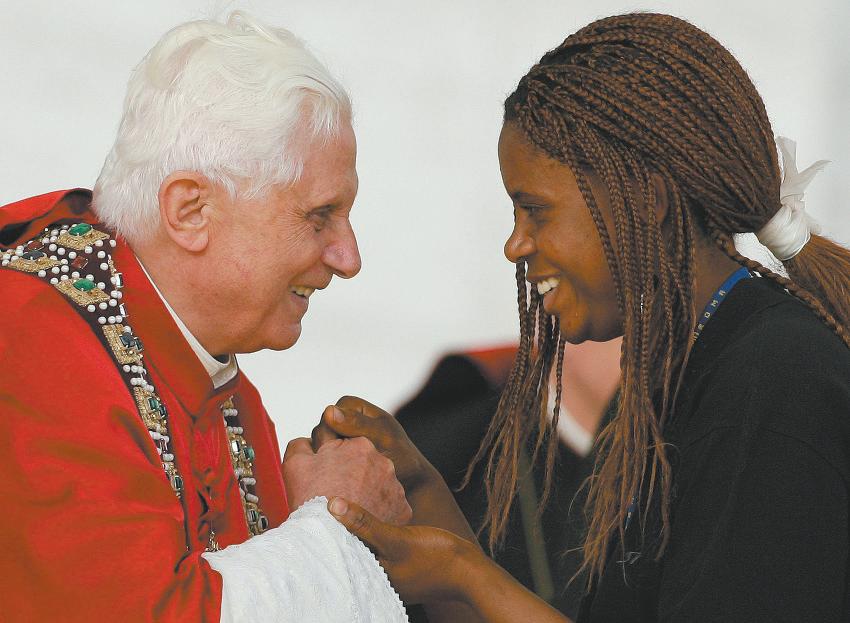
Pope Benedict’s prayer intentions January 2009
GENERAL: That the family may become more and more a place of training in charity, personal growth and transmission of the faith.
MISSION: That the different Christian confessions, aware of the need for a new evangelisation in this period of profound transformations, may be committed to announcing the Good News and moving towards the full unity of all Christians in order to offer a more credible testimony of the Gospel.


Decision will end up supporting Perth’s marginalised
■ By Robert HiiniTHE Young Christian Workers (YCW) of Perth are looking to build on the efforts they began last year, standing in solidarity with the poor by volunteering at Shopfront, an outreach organisation based in Maylands providing friendship and support to some of Perth's most disadvantaged citizens.
The organisation held a volunteer training session for interested persons at Shopfront's premises last Wednesday, hoping to eventually be able to add another night to the Tuesday and Wednesday dinner times they already assist with.
Shopfront provides practical support in the form of food, accomodation and financial assistance to thousands of "visitors" a year - many of whom experience issues of homelessness, mental illness and addiction amongst others.
Marie Raheb, the group's National Secretary, said she was overwhelmed and nervous the first time she volunteered at Shopfront and a little daunted by the prospect of meeting people who had or were experiencing a range of contemporary social ills.
That trepidation, however, soon left her.
"They're just people and having conversations with them you get to learn more about their lives and share with them as well. It's quite a humbling experience," Ms Raheb said.
"We believe it's a way of putting faith into action. Standing in solidarity with others."
They had heard about the agency from the Catholic Pastoral Centre's Building Manager, Julie Williams whose advocacy led to Shopfront's establishment in collaboration with Archbishop Barry Hickey.
Once controversial, US-Vatican relations mark silver anniversary
VATICAN CITY (CNS)The Vatican and the United States quietly celebrated a silver anniversary in midJanuary, marking 25 years of formal diplomatic relations. The US Embassy to the Holy See observed the event with a symposium and a dinner, where about 50 guests raised their glasses in a toast to a milestone that today seems inevitable, but once seemed unthinkable. The US ambassador to the Vatican, Mary Ann Glendon, who was to leave her post six days later to return to a teaching job at Harvard, drew appreciative laughter at the dinner when she read from an 1865 letter that described Rome as the perfect listening post. At that time, the secretary of the US legation to the Papal States wrote to his superiors in Washington and asked for a bigger budget so he could

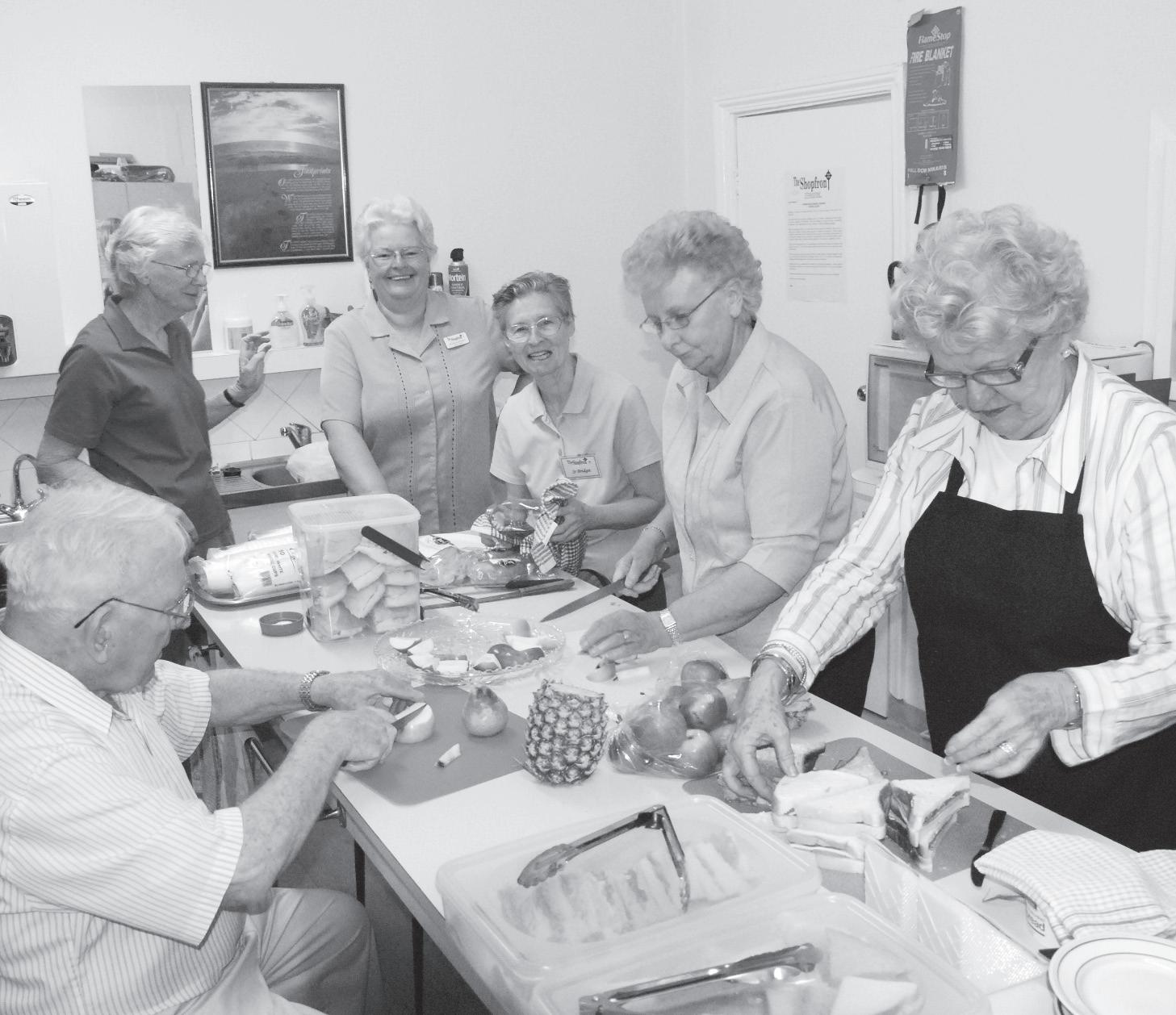
The volunteers arrive at 6pm to prepare meals, going on to serve food and to socialise with Shopfront's extended family of visitors.
Ms Raheb says that they allow for varying levels of volunteer commitment, whether a person can help out monthly or weekly, recognising the hectic study and work pressures many young workers are under.
YCW also hope to establish a "review group" for their Shopfront volunteer, following the movement's "See, Judge, Act" method - reflecting upon the experience and exploring the issues involved.
give “small but frequent entertainments” to other diplomats and the monsignors heading Vatican departments. “European diplomacy is carried on by dinners and parties - you gather information this way to be obtained in no other manner,” he wrote. A glance around the embassy’s banquet tables found clerical and diplomatic guests nodding in assent. Vilnius bishop denounces riots
VILNIUS, Lithuania (CNS) - The head of the Lithuanian Catholic bishops’ conference condemned riots that erupted during a protest against government economic policies. “We must protect our state and not ruin it. Living in democracy means protecting one’s rights by legitimate means ... but that must be done peacefully and legally, without resorting to violence,” said Archbishop Sigitas Tamkevicius of Kaunas, president of the bishops’ conference, in a statement on January 16. Earlier that day, some 6,000 people gathered at the par-
review group will be in addition to the groups they already have in Morley, Leederville and Willetton and their other service group who visit prisoners at Acacia Prison.
Volunteering at Shopfront
For more information about Young Christian Workers or volunteering at Shopfront, contact Marie on 0422 510 816 or marieraheb@ hotmail.com.
liament building in Vilnius, answering the call of trade unions to protest the new centre-right coalition’s plan to raise taxes in an effort to combat a recession and decrease the budget deficit. But the event quickly turned into riots, which led police and special forces to use tear gas and rubber bullets to prevent the crowd from ruining the building and causing further damage.
McGoohan dies, 80 LOS ANGELES (CNS) - Irish actor Patrick McGoohan, best known to television audiences for his title roles in the 1960s’ CBS drama series “Secret Agent” and “The Prisoner,” died on January 13 in Los Angeles. He was 80 years old. Funeral arrangements for the actor were not announced. McGoohan, a Catholic, introduced himself as “Drake. John Drake” in the style of James Bond for the series “Secret Agent.”
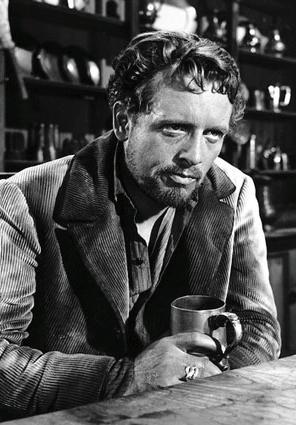
But that’s where the comparison ended. While the Bond character was - and remains - quite the womanizer, McGoohan said his faith made him resist having his Drake character fall into the same lifestyle as Bond. The series debuted in England under the name “Danger Man.” It was picked up for US viewers with a new title, which was buttressed by the theme song, “Secret Agent Man,” a version of which became a top pop hit for singer Johnny Rivers.
Priest sentenced
LOUISA, Va. (CNS)Father Rodney L. Rodis, a suspended priest of the Diocese of Richmond, was sentenced on January 14 to 13 years in state prison for embezzling funds from two parishes he served as pastor. He will serve the sentence, handed down by Judge Timothy Sanner of the Louisa County Circuit Court, after he completes a 63-month term in federal prison. He received the federal sentence in February 2008 for an embezzlement scheme. - CNS
Two newly ordained local boys lead 2009 Summer School of Evangelisation
■ By Mario BorgTWO recently ordained Missionary of God's Love priests returned home to Western Australia to join Glendalough's Fr Doug Harris in spiritually directing the Disciples of Jesus Covenant Community's annual Summer School of Evangelisation, held at New Norcia last week.
Fr Daniel Strickland and Fr David Callaghan were ordained at St Christopher's Cathedral in Canberra last December and both said they felt somewhat strange ministering as priests after at least 10 years attending the Summer Schools as participants.
Over 80 participants attended the week long retreat which delivered lecture series on subjects as diverse as Scripture, the lives of the Saints, Church teaching on life issues and Catholic apologetics presented by the two priests, MGL Sister Rosie Drum, and Richard Egan and Laura Firthboth lecturers at Perth’s only Catholic Bible College, Acts 2 College of Mission and Evangelisation. Guest lecturers included highly regarded religious educator, Paul Kelly from Aquinas College, local Catholic School teachers Mark Ratajczak and Daniel O’Connor and biostatistician, Martin Firth.Archbishop Hickey gave his address towards the end of the School and encouraged all within religious organisations to enter more fully into a spirit of loving each other and to refrain as much as possible from the temptation of criticism and negativity towarsd others.
Participants offered a pledge to the Archbishop that they would grow in their commitment to their faith and of serving the Church. The Summer School provided an environment where each participant was encouraged to engage in the various forms of prayer that were available including daily Mass and adoration of the Blessed Sacrament, praise and worship, and Rosary walks. Personal encounters with God were evident among most and led to several of the participants announcing their intention to join the Youth Mission Team - an outreach organisation that runs retreats in schools - with others declaring a willingness to explore their vocation to consecrated life.
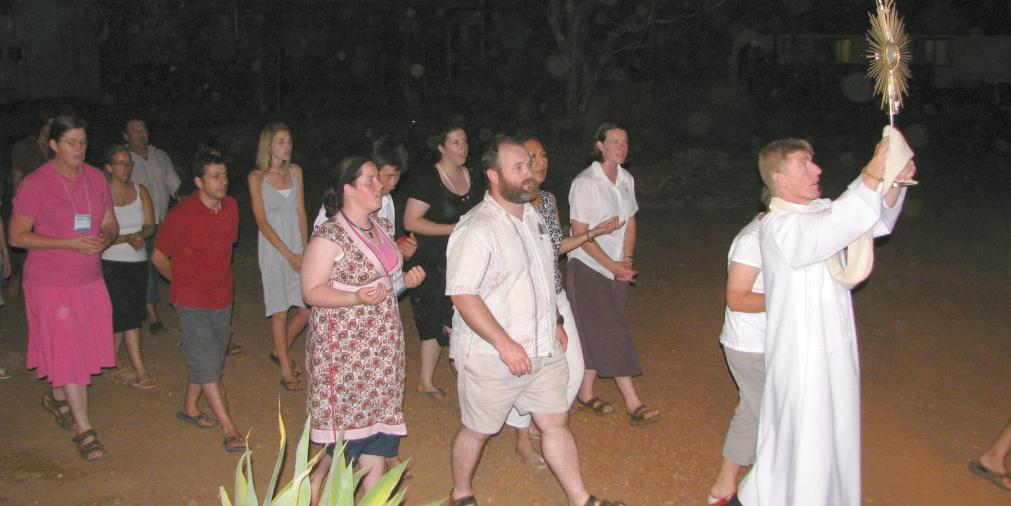
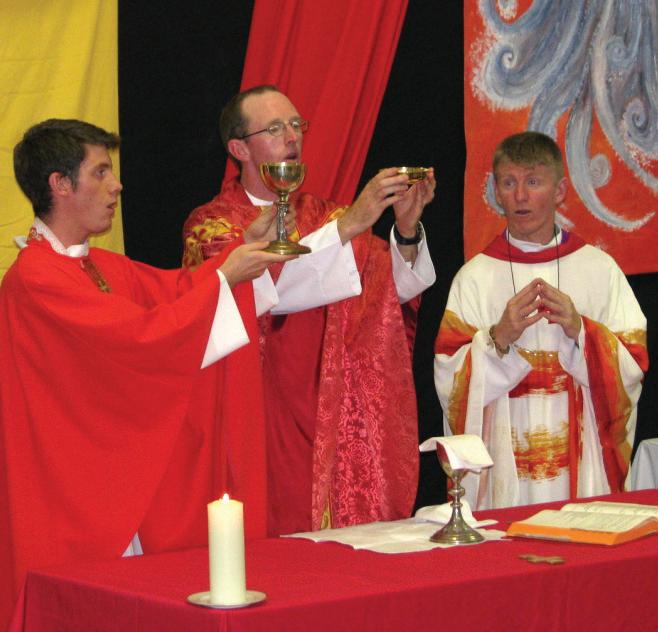
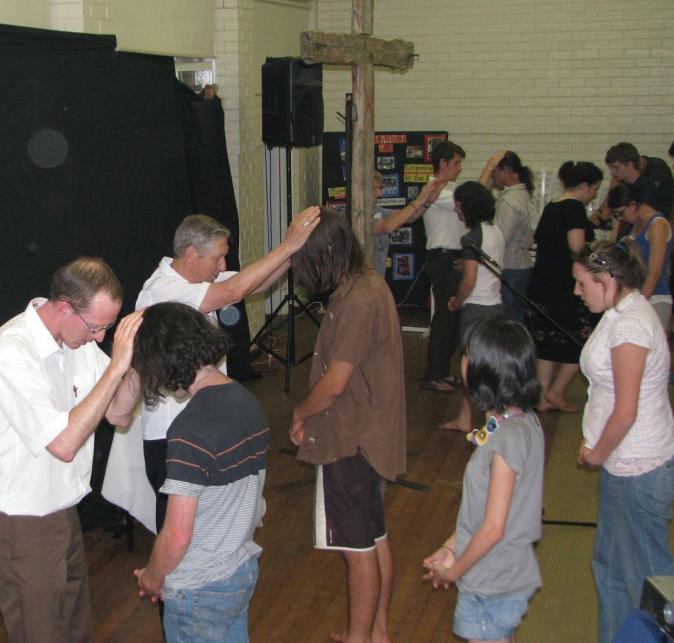
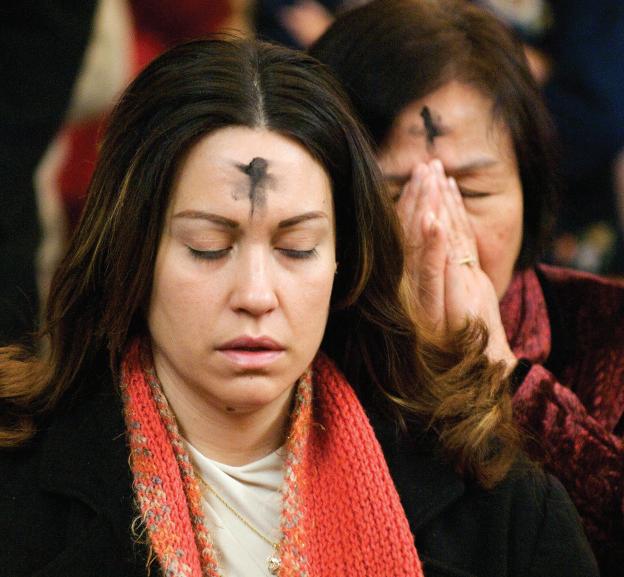
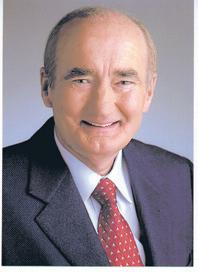
Is it true that when people come to do business with me, they will be treated with courtesy, sincerity, professionalism and efficiency?
Is it true that “I want your business and I’m prepared to pay for it” and “I stand behind every car I sell”.
Is it true that I have over 40 technicians who are dedicated to getting my used cars in first class condition before sale?
Is it true that most of my sales are not from direct advertising but personal recommendation, repeat business and reputation?
Is it true I have my own finance company to assist good people with poor credit to buy cars from me?
Is it true I sell over 1,300 vehicles every month in Victoria Park and that is the biggest number from any one location in Australia?
Is it true that I have a warehouse selling cars under $10,000 and that I offer a full money back guarantee within one week?
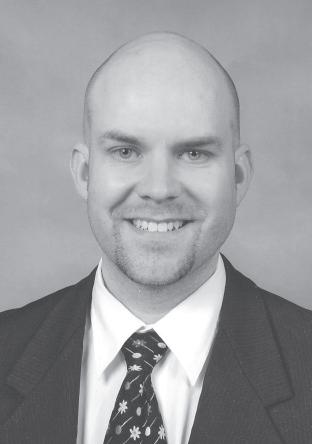
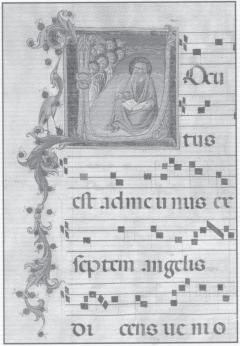
employ again one of the Church’s great “treasures”.
Gregorian chant is making a comeback, especially amongst Catholic youth.
■ By Anthony BarichSUCCESSIVE Popes throughout the Church’s 2000-year history have believed that there’s something special about liturgy.
Gregorian Chant - established in the Middle Ages - is a way of singing parts of the Mass in a way that elevates it to a more contemplative, peaceful experience and adds a spiritual dimension to otherwise simple words.
Named after Pope Gregory the Great - who presided over the Church during the Middle Ages and mandated music standardisation, including rules for composers and musicians for performing and writing music - it is considered the Church’s crème-de-la-crème as a method of worship.
Pope Benedict XVI himself encouraged lovers of such treasures of the Church in his Apostolic Exhortation Sacramentum Caritatis (Sacrament of Charity), which was
based on the 2005 Synod on the Eucharist:
“I desire, in accordance with the request advanced by the Synod Fathers, that Gregorian chant be suitably esteemed and employed as the chant proper to the Roman liturgy,” said Pope Benedict, who’s not too shabby on the piano himself.
By saying so, Benedict was not mandating an old rite but encouraging a return to a form of worship that not only draws participants closer to God in prayer but to each other in community.
“Hence it is that those who are trying to improve the quality of congregational singing cannot refuse to Gregorian chant the place which is due to it,” Paul VI said when he issued Jubilate Deo, a minimum repertoire of Gregorian Chant to “make it easier for Christians to achieve unity and spiritual harmony with their brothers and with the living traditions of the past”.
By issuing Jubilate Deo, Paul VI’s aim was liturgical renewal, to help fix Catholics’ minds on the mystery of Christ in the Mass in a more contemplative way.
Today, it has found a young audi-
Archdiocese of Perth Catholic Education Centre, 50 Ruislip Street, Leederville
Commence Tuesday 10th February 2009
ALL COURSES RUN FOR 8 WEEKS - COST $50 Timetable
Tuesday
9.30am-12pm The Letters of St Paul “The Year of St Paul” with Sr Shelley Barlow
1.00pm – 3.30pm Introduction to the Old Testament with Stephanie Woods
1.00pm -3.30pm Beginning Theology with Sr Philomena Burrell
Thursday
9.30am -12pm The Public Prayer of the Church with Fr Peter Stiglich
1pm – 3.30pm The History of the Early Church (The Origins of our Story) with Michelle Jones
Friday
9.30am-12pm Ministry to those who Grieve Level I with Gerry Smith
For Enrolments & further Information
Office Hours Tues, Thurs 9am -3.30pm, Friday 9am -1pm

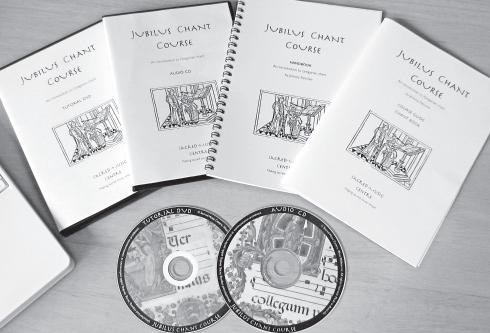
ence. A Gregorian chant course run during World Youth Day at St Augustine’s Church in Balmain last year drew so many pilgrims –over 200 – that they had to use the Protestant church down the road to cater for them all.
Jeremy Fletcher, a 37-year-old graduate of music at the Australian Catholic University, helped run the course, as well as one during Melbourne’s Days in the Diocese.
“If you present something to young people when you’re passionate about it and they can see you know what you’re talking about, they respond to it,” he said.
He was only two years old when Paul VI issued Jubilate Deo “as a gift” to the bishops of the world, but ever since learning the organ from an Anglican as a teen growing up in Grafton, NSW, he has been passionate about promoting music of good quality.
“I’ve always been dismayed that many Catholics have been unfamiliar with things like Paul VI’s letter to Catholics,” he said.
So he started the Sacred Music Centre in West Melbourne in 2006 and last month released the Jubilus Chant Course – based on Paul VI’s Jubilate Deo - to make ordi-
nary Catholics more familiar with their heritage in an easily accessible way.
It is the first multi-media course in Gregorian Chant, incorporating a DVD, a chantbook, an audio CD and internet services.
Initially transferred from generation to generation by oral tradition, the need to transcribe the chant onto paper arose in the 10th century.
It was only a matter of time, Jeremy says, before chant became available through digital media.
Gregorian chant is difficult to produce, he admits, as it has its own form of notation. Compared to conventional music, the stave uses four lines instead of five, and the notes are square instead of round. Singers must also be able to sing without the accompaniment of an organ or piano.
Initially transferred from generation to generation by oral tradition, the need to transcribe the chant onto paper arose in the 10th century.
Jubilate Deo contains simple chant settings in Latin of the parts
Phone 6380 5160 Fax 6380 5162 Email maranatha@ceo.wa.edu.au Course Handbook available on request A full time person with a social work degree or relevant tertiary qualification is required to coordinate the support of a community of religious sisters in Perth and to manage the ministries of this community. The person should have good communication and facilitation skills, and demonstrate an ability to relate and work well with elderly people and to manage a ministry centre efficiently and effectively. For a position description, e-mail christine.wong@goodshep.com.au Applications by 9 February 2009 to: The Province Leader, Sisters of the Good Shepherd, P O Box 182, Abbotsford Vic 3067 or e-mail:christine.wong@goodshep.com.au
of the Ordinary of the Mass: Kyrie, Gloria, Credo, Sanctus, Memorial Acclamation and the Agnus Dei. It also provides musical settings for the dialogues between priest and people, such as before the Preface, and the Ite Missa est, the response to the Prayer of the Faithful, and others.
An expanded edition of Jubilate Deo was later issued by the Congregation for Divine Worship in 1987. Yet most Catholics still haven’t heard of it. Jeremy plans to change that.
He says that if Catholics took on Paul VI’s and Benedict XVI’s encouragement to learn the chant, “It would nourish the personal faith of everyone who is involved in sacred music – which is basically singing, which means everyone in the congregation would benefit”.
“I don’t mean big fancy Masses with organs and choirs, just the most basic responses between the priest and the people,” he says.
Over the past three years the Sacred Music Centre has run five chant courses – with admittedly “only modest success” - similar to what University of WA music student Andrew Cichy is doing with parishes in Perth.
Jeremy was especially inspired by his work as New Norcia organist from 2003-05. “I was greatly encouraged by what I was doing there as I was able to see first hand at how people came to New Norcia as a retreat experience, and they found the music easy to join in, and enriching, even doing very simple chats in English. I saw how people loved it as it added an extra spiritual dimension to the words of the Mass,” Jeremy said.
“It’s about teaching the faith,” Jeremy says, “because as the Church’s documents says, the music is more holy the closer it is to the text itself – the words of the liturgy. It’s meant to heighten the words we have to a higher spiritutal level, which is what we want when we go to a liturgy.
“And personally, when I look back on the history of sacred music I can’t help but be excited about that as it’s such an inspiring story down through the ages, as think of al the wonderful choirs, the great numbers of composers that have been formed by the Church, from Mozart to Palestrina…
“So many groups associated with sacred music that it’s allencompassing – choirs from the very young to the elderly - it’s an expression of the whole Church.”
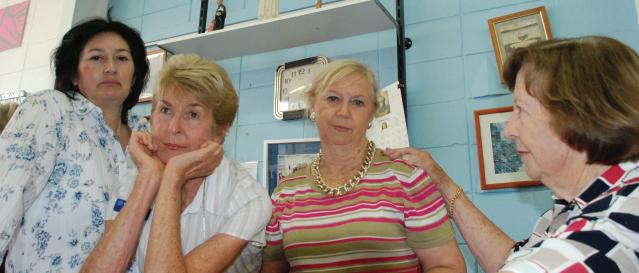 ■ By Anthony Barich
■ By Anthony Barich
FOUR Vinnies Retail Centres across Western Australia have been burgled five times over a period of eight days, causing $5000 worth of damage.
Volunteer-operated stores in Wembley, Victoria Park, Bassendean and Bunbury were all hit from January 3-11. A Rockingham centre has also previously been burgled. The St Vincent de Paul Society says it’s just coincidence and says its stores are “not an easy target”.
The Vinnies store in Victoria Park was the latest centre to be robbed, with volunteers arriving in the morning to find the door’s lock broken and the safe entered with its contents gone.
Vinnies Wembley was targeted twice, once on January 3 then again on January 11 causing over $2,500 worth of damage.
Vinnies Bassendean was broken into on January 4 with $1000 worth of damage caused, while Vinnies’ regional Depot in Bunbury fell victim to criminal activity over the weekend with perpetrators causing hundreds of dollars of damage.
St Vincent de Paul Society spokeswoman Lucinda Ardagh said members were shocked in a state of disbelief that anyone would target a charitable service in the community to steal money and goods.
“The funds that the Society raises in the community are to help the disadvantaged and the homeless and such criminal activity diverts funds away from that core work in order to fix the damage that has been caused,” she said.
“In addition to the funds, we have extremely dedicated volunteers who donate their time each and every week to keep the service running and these volunteers have been left shaken and bewildered that someone would target their local Vinnies shop –especially at this festive time of year.”
There are 43 Vinnies Retail Centres state wide to provide funds for emergency welfare assistance to those in need.
“We didn’t expect to start 2009 having to clean up damage from break-in’s to our much loved Vinnies shops however we are staying optimistic and hope people understand the disservice they are doing to those in need by targeting our services and hence disrupting the good works we are here to provide,” Ms Ardagh said.
Anyone with information is urged to contact Police or Crime Stoppers on 1800 333 000. Vinnies also offers a great volunteering opportunity to anyone wanting to make new friends, gain retail experience or who simply want to give something back in their community.
For further information about the Society phone (08) 9475 5400 or log on to www.vinnies.org.au
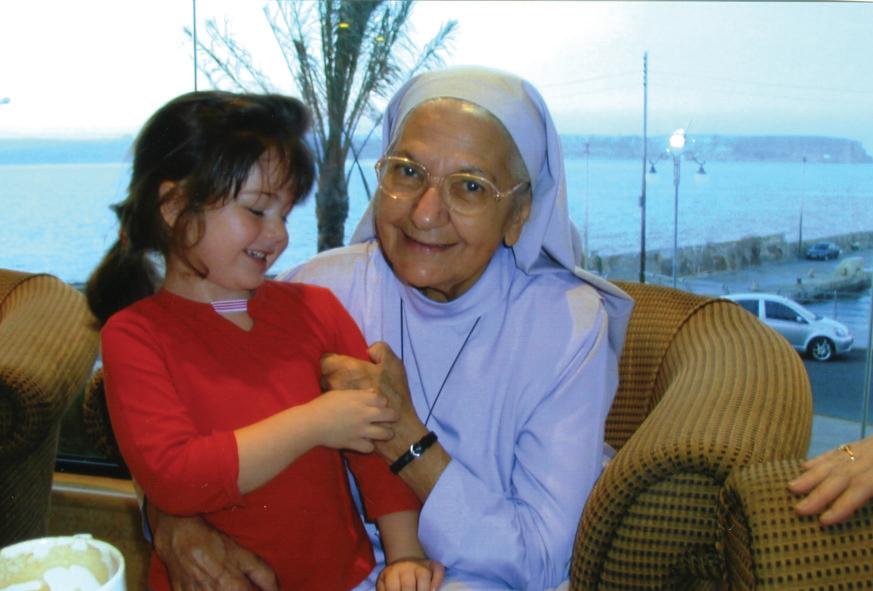
FATHER Michael Gatt of Osborne Park has received the news of the passing of his older sister, Sister Carmen Gatt FMM. Sister Carmen spent 45 years in Pakistan and she was well known as “Sister Teresa of Pakistan”.
The Respect Life Office have announced a follow-up retreat for Embrace the Grace Youth Conference participants to take place 20 - 22 February.
With over 500 participants in its five year history, the retreat marks the first follow-up retreat for attendees since the first Embrace the Grace held in 2004.

A Memorial Mass to celebrate the life of Sister Carmen will be held on Tuesday, January 27 at 7pm at St Kieran’s Church, corner of Waterloo and Cape Streets, Tuart Hill.
Friends and parishioners (past and present) of Fr Gatt are invited to attend the Mass with supper to be served afterwards.
Project Officer Jane Pike says that the retreat provides an opportunity for social “catch-up”, sports, games and opportunities “to take some time out spiritually.” Ms Pike says that after the initial post-conference high in December every year, many participants find it difficult to maintain contact with each other and with God.
For more information contact Jane on 9375 2029 or at respectlife@perthcatholic.org.au
The stand out super fund for all Australian Catholics and those who share our values
When you think about it, most top-performing super funds look the same.
Until, of course, you raise the issue of trust. Ask yourself this important and very telling question. How many support and uphold the same values as you?
That’s where one super fund stands alone. A dedicated fund for Catholics with over 25 years’ experience, CSRF manages $3.5 billion in retirement savings, is a not for profit super fund with low fees and has a no Commissions paid policy.
Find out how good management and good people can make a great deal of difference to your quality of life in retirement.
Visit www.catholicsuper.com.au or call 1300 658 776 today.
Joseph Parkinson of the LJ Goody
Centre warns about the ethical problems associated with any test for autism
■ By Anthony BarichLJ Goody Bioethics Centre
director Rev Dr Joseph Parkinson says that there are “serious questions” to be raised over making a prenatal test for autism available.
A team of scientists led by Prof. Simon Baron-Cohen earlier this month found evidence to suggest babies exposed to high levels of testosterone in the womb have a higher risk of developing autistic traits than those who were not.
While such a test would not be possible for several years, the researchers called for a full discussion on the medical and ethical issues before proceeding with any commercial development of the proposed autism test, which Rev Dr Parkinson applauded.
He said that the very process of amniocentesis – retrieving a sample of the pregnant mother’s amniotic fluid – carries a risk that, in the case of autism, does not justify the test.
Accurate prenatal testing performed for the right reasons can be “perfectly ethically acceptable”, Rev Dr Parkinson says, but warned that the history of prenatal testing shows it is too often a precursor to abortion, as has the Down syndrome test, which in some cases accounts for the aborting of 40 per cent of pregnancies diagnosed with the condition.
Given that amniocentesis can cause harm or even death for an unborn baby in one to two per cent of cases, an obstetrician would not generally recommend it unless the risk of the condition being tested for is significantly higher than the risk posed by the test itself, he
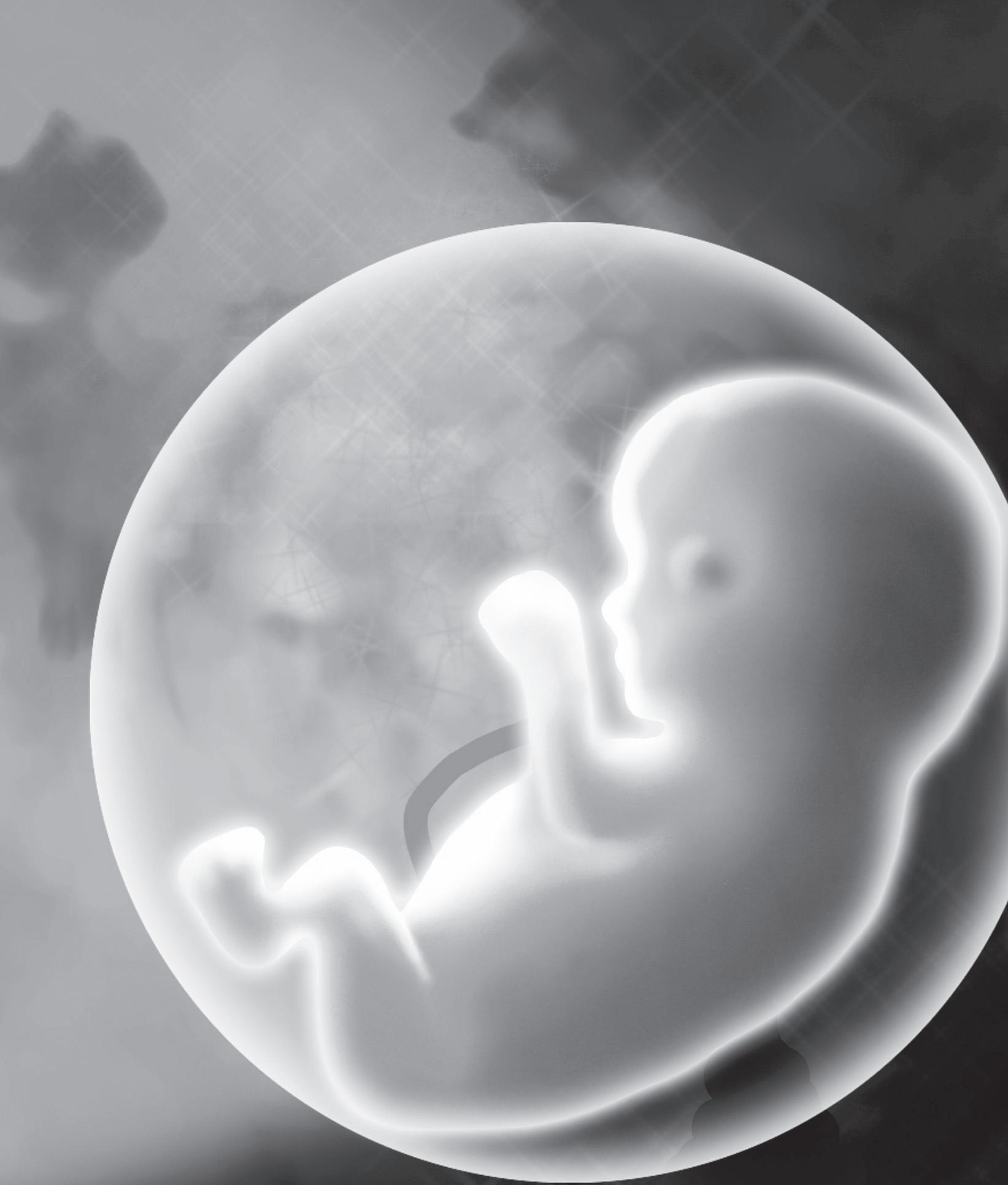
said. “Since autism itself is not lifethreatening, testing for autism by amniocentesis exposes the unborn child to unnecessary risk,” he said.
“On that account alone, one must raise serious questions about the wisdom of making such a test available.”
Also, given that many medical tests have a degree of error that must be considered, so there may be some risk of a test yielding a false result.
“Even though a child may carry the genes of autism, there is no way of knowing that particular child will be affected by those genes,” he said, adding that sometimes there
seem to be no physical or developmental effects at all.
“So even if a prenatal test shows positive for autism, the child born may not display many, or even any, typically autistic traits. There are many successful high achievers who are genotypically autistic, but you would never know it.”
The Catholic Church’s “clear and unequivocal position” on such testing teaches that prenatal testing procedures are ethical if they do not pose unnecessary risk to the child and is intended to be of benefit to him or her.
But if the test is intended as a precursor to termination in the
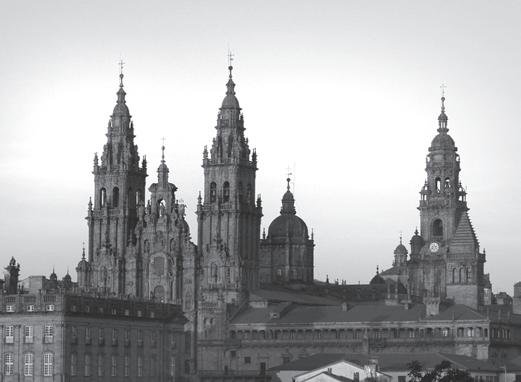
*

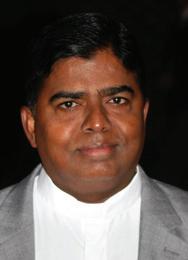

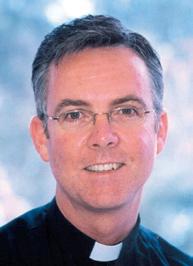
event of a positive result, or if it has no real therapeutic potential, then the test is unethical in the Church’s eyes.
He said that while some parents may argue that they would like to have advance notice of the child’s chances of autism to prepare themselves to provide for the child’s unusual developmental needs – a “reasonable argument” – “unfortunately, the history of prenatal testing often tells a different story”.
Antenatal screening for Down syndrome, for example, was originally development specifically to eliminate children born with the condition by offering parents the choice of termination, Rev Dr Parkinson said.
He said the outcome of such decisions rests not with the test or doctors but the parents – “as by the time a prenatal test is performed there is already a mum and dad in the picture” – and they are under great emotional strain.
Therefore, he said, the response of the Church – laity and clergy alike – must be “unwavering support”.
“While it is important that they are properly informed about all aspects of the decision, including the Church’s position on it, in view of the stresses they are under this information has to be given to them with great sensitivity,” he said.
It is “absolutely essential”, he added, that every parent in this position has the assurance of ongoing support from friends, family and church, and “even when we cannot agree with the decision made, we can and must support the person who has to make them, and who has to live with the consequences of their decision”.
“John Paul II called us to establish a culture of life amid the prevailing culture of death,” Rev Dr Parkinson said.
“For priests and (lay) people alike, that means upholding the dignity of every life as far as we are able, including parents who choose
As a child my “Let’s pretends’” Involved my toys and unseen friends
But when I put my toys away In later years, I learnt to pray
So it would seem
That once again
I have with me
An unseen Friend
On shadowed paths
Where I can’t see
He comes to light
The way for me
On blue sky days
In summer’s breeze
His spirit’s there I feel its peace
Come failure or Come victory
I’m not alone
not to continue their pregnancies, even as we grieve the effects of their choice,” he said.
“Ultimately, as the Gospels teach us, we will be judged by God not on the basis of judgments we have passed on others, but on the compassion and practical charity we have offered them.”
He said that parents of autistic children speak more often of the blessings they have received than of the difficulties they have met along the way, and encouraged people worried that their child might be autistic to contact one of the many supports networks for parents.
The Autism Association of WA has a wealth of information on www.autism.org.au
The Cambridge University researcher whose recent work on fetal testosterone levels is seen as a first step in the creation of a prenatal test for autism has warned against the potential dangers of such a test.
Dr Simon Baron-Cohen, a major researcher in the field of autism, has told the online blog about.com that “all babies have a right to life”, but said: “If there was a prenatal test for autism, some parents will exercise their parental choice and opt for a termination, and this is within the law, and I support parents’ freedom to choose or not choose to have a baby.”
However, “my view”, he said, “is that it would be wrong to consider terminating a pregnancy purely because of the risk that the foetus MIGHT (his emphasis) develop autism. This is a form of eugenics and discrimination. Nor do I personally think that a foetus’ right to life depends on whether s/he is likely to be talented or not. All babies have a right to life.”
On the Communitycare UK website, he wrote that such a test would bring forward the age at which diagnosis is possible, from the current average age of three years old.
However, he also conceded that there were three major potential disadvantages of such a test if developed in the future:
● “There might be eugenic selection against foetuses who might develop autism, and this is a form of discrimination against those who are not neurotypical.
● “Some parents might opt for a termination because they think their child will not have a good quality of life, even though the child may in fact make a good adaptation and/or society could adapt to them.



He stands by me

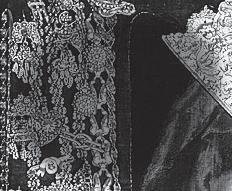


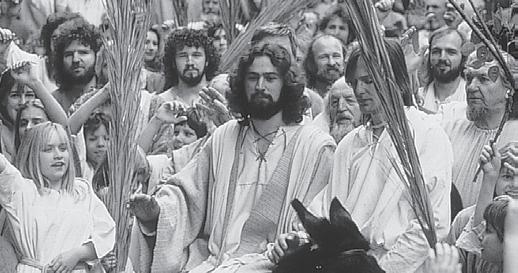
At life’s door
My Friend did greet
And when it shuts
I know we’ll meet
So precious life If it should end
I’ll know that smile
It is my Friend
● “The genes for autism may be linked to the genes for talent (and by talent I don’t just mean the musically or artistically or mathematically gifted, but even in those with apparent learning difficulties there may be an excellent memory, or excellent attention to detail and patterns, or an excellent ability to focus attention for long periods, or acute sensory hyper-sensitivity), such that eradicating the genes for autism may also eradicate the genes for these talents.
Dr Joseph Parkinson of the LJ Goody Bioethics Centre summarises the latest Church teaching on IVF and related ethical issues
Twenty-one years after its first foray into assisted reproductive technology, the Vatican’s Congregation of the Doctrine of the Faith late last year issued a new document on IVF and related bioethical questions.
The ‘Instruction Dignitas personae on Certain Bioethics Questions’ is positive in content, respectful in tone, and crystal clear on some contentious medical issues.
Technology advances at light speed today, and nowhere faster than in the fields of IVF, stem cells, genetics and biomedicine, so it takes a great deal of courage to challenge the world’s unquestioning acceptance of technological development.
The original 1987 statement Donum vitae has stood the test of time because it was grounded not in the changing technical detail of contemporary medical sciences but in enduring human truths derived from the older and more fundamental sciences of philosophy and theology.
Dignitas personae repeats the core teachings of Donum vitae, affirming many of its key points, clarifying some problematic issues, and tackling some new ethical questions openly and constructively.
The view of science here is overwhelmingly positive: science is ‘an invaluable service to the integral good of the life and dignity of every human being’, so the Church not only ‘views scientific research with hope’ but also encourages Christians to ‘dedicate themselves to the progress of biomedicine’. [3]
If at times the Church has found it necessary to say ‘no’ to some aspects of medical research and technology, it does so only in order to protect some authentic moral good: ‘Behind every ‘no’ in the difficult task of discerning good from evil, there shines a great ‘yes’ to the recognition of the dignity and inalienable value of every single and unique human being called into existence.’ [37]
In the same positive light the document acknowledges both the strength of couples’ desire to have children and the suffering caused by infertility [16].
It aims to assist in the formation of Christian conscience [10], a sign that the Congregation is fully aware that we all must take these truths into serious account when making responsible ethical choices.
Basing its arguments not in religious faith but in the inner logic of nature, Dignitas personae often hints at one of Pope Benedict’s favourite themes: all creation has a structure which we can discover and understand because we are part of the same creation, and we can rely on that structure to guide our decision-making in life.
This is the essence of ‘natural law’ in the Catholic moral tradition. We Christians identify God as the source of that ‘law’, and
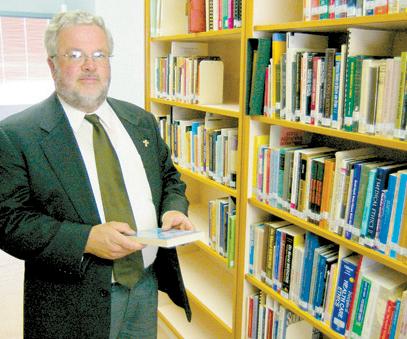
even though many sciences do not acknowledge a divine creator, their very existence depends on the same ‘common structure’ which they too discover in creation.
This fact enables Dignitas personae to challenge the sciences on their own terms, especially on the somewhat arbitrary attitude adopted toward a key question in bioethics: when does human life begin? [4]
The document also confirms that, since we are personal beings, the generation of human life should never be separated from the deepest and most personal expressions of human love - which grounds its objection to many aspects of reproductive technology. [6]
On both questions Dignitas personae reiterates the position of Donum vitae: from the moment of conception every human life is deserving of the respect due to a human person, and every human person deserves an origin worthy of his or her personal dignity.
On some newer technologies the document offers clear guidance:
● the freezing of embryos in IVF exposes them to harm, and so is ‘incompatible with the respect owed’ to human life; [18]
● pre-implantation genetic diagnosis (the testing of IVF embryos for genetic anomalies) is discriminatory, leads to negative perceptions of persons with disabilities, and ultimately is destructive of many embryos; [22]
● gene therapy intended to benefit the individual embryo is morally acceptable, but some other genetic procedures do not accord with human dignity; [25]
● all forms of human cloning are unacceptable, because they ‘give rise to a new human being without a connection to the act of reciprocal self-giving between spouses’. [28] Behind all of these ‘no’s’, of course, is the same resounding ‘yes’ to the dignity of every human being, at whatever stage of growth and development.
Regarding stem cells, it is pleasing to note that the Congregation has reached the position foreshadowed several years ago by this author in a series of parish talks in Perth: ‘there is no moral objection to the clinical use of stem cells that have been obtained licitly’ - that is,
The United States Conference of Catholic Bishops has provided instruction on Dignitas Personae through a Q & A format:
● What kind of document is this?
It is an “instruction” from the Catholic Church’s highest doctrinal agency, the Vatican’s Congregation for the Doctrine of the Faith (CDF), applying timeless moral principles to some new issues and situations arising from biotechnology. It does not declare a new infallibly defined dogma, but is approved by Pope Benedict XVI and has his authority.
Like most Church teachings, its moral judgments are part of the “universal ordinary magisterium.” Catholics are called to inform their consciences with such teaching, adhering to it with “religious assent” (Catechism of the Catholic Church, no. 892).
● Does it have precedent in other Church documents?
embryo cryopreservation (freezing) and destructive experimentation.
● What topics in this document have not been specifically addressed in past teaching documents?
Some very new issues are discussed here for the first time. Some proposed methods for altering the technique for human cloning so it will produce embryonic stem cells but not an embryo (e.g., “altered nuclear transfer”) are judged to require more study and clarification before they could ethically be applied to humans, as one would have to be certain that a new human being is never created and then destroyed by the procedure.
without the destruction of human embryonic life. [32]
Unfortunately, such is the speed of technological advance that the document makes no mention of the most exciting medical breakthrough of 2008: the re-programming of human body cells to form iPSCs - induced pluripotent stem cells - which could eventually make destructive stem cell research a thing of the past.
Finally, the document tackles one more thorny issue: the use of vaccines derived from unethical sources.
This question concerns the use of various vaccines, usually given to children, which were developed using cultures derived from fetuses aborted back in the 1950s and 1960s.
In line with advice from the Pontifical Academy for Life, the Congregation affirms that while there is a general duty to avoid any connection with wrong-doing, we also need to bear in mind the differing types and degrees of responsibility for wrongs which have been done.
So if parents believe that their children’s health warrants use of such vaccines, they are ethically justified in allowing vaccination.
At the same time they should continue to pressure healthcare organisations to make other, more ethically acceptable options available.
Such is the common sense line adopted throughout Dignitas personae
In its positive outlook on the Church’s role in the world, and in its refusal to engage in the sad polemics which mark too many ethical debates today, this document could be a template for the Church to engage the modern world in a conversation which must be had, a respectful dialogue on the nature, unique dignity, and ultimately the future of mankind.
This is a central aspect of Pope Benedict’s vision for the Church in 2009, and we should be pleased that he, and his successor in the Congregation, Cardinal Levada, have given us such a clear model
Yes. Chiefly it is a sequel to Donum Vitae: Instruction on Respect for Human Life in its Origin and on the Dignity of Procreation, issued by the Congregation in 1987 to address human “in vitro” fertilisation (IVF) and the abuse and manipulation of human life in its earliest stages that this technology made possible. Other judgments in the document – on human cloning, embryonic and adult stem cell research, genetic engineering, drugs and devices for preventing implantation, etc. – confirm and elaborate statements made in past speeches or other documents from Pope John Paul II or Pope Benedict XVI, or in the Holy See’s interventions at international forums such as the United Nations. In recent years these topics have also been the subject of symposia and/or documents from the advisory body, the Pontifical Academy for Life.
● Why is the Catholic Church opposed to reproductive technologies such as “in vitro” fertilisation?
The child conceived in human procreation is a human person, equal in dignity with the parents. Therefore he or she deserves to be brought into being through an act of total and committed marital love between husband and wife.
Technologies that assist the couple’s marital union in giving rise to a child respect this special dignity of the human person; technologies that replace it with a procedure by a technician in a laboratory do not. The moral problem is aggravated by efforts to introduce gametes (sperm or egg) from people outside the marriage, to make use of another woman’s womb to gestate the child, or to exercise “quality control” over the child as though he or she were a product. IVF as practiced today also involves a very high death rate for the embryos involved, and opens the door to further abuses such as
(These cautions do not apply to an even newer technique, using genetic or chemical factors to reprogram ordinary adult cells directly into “induced pluripotent stem cells” with the versatility of embryonic stem cells. This clearly does not use an egg or create an embryo, and has not raised objections from Catholic theologians.) Proposals for “adoption” of abandoned or unwanted frozen embryos are also found to pose problems, because the Church opposes use of the gametes or bodies of others who are outside the marital covenant for reproduction.
The document raises cautions or problems about these new issues but does not formally make a definitive judgment against them. It also goes into far more detail than past documents in raising moral concerns about use of “germ-line” genetic engineering in human beings, for treatments and especially for supposed “enhancement” or tailoring of human characteristics.
● Do the cautions or negative judgments on such developments indicate a suspicious attitude toward modern biotechnology in general?
On the contrary, the document says that in making use of these new technological powers the human being “participates in the creative power of God” and acts as “the steward of the value and intrinsic beauty of creation.”
It is because this power carries with it great responsibility that we must never misuse technology to demean human dignity, but always to serve the value and dignity of every person without exception.
Misuse of genetic technology may make possible new forms of discrimination and oppression of the weak by the strong, in which some human beings exert ultimate control over others – creating and destroying them for supposed benefit to others, manipulating them to make the “better” human being, or denying them their most fundamental rights because they do not measure up to someone’s standard for human perfection. Because science and technology have a great potential for doing both good and evil, they must be guided by an ethic grounded in human dignity.
Happiness permeates massive gathering with Pope and 25,000 friends as
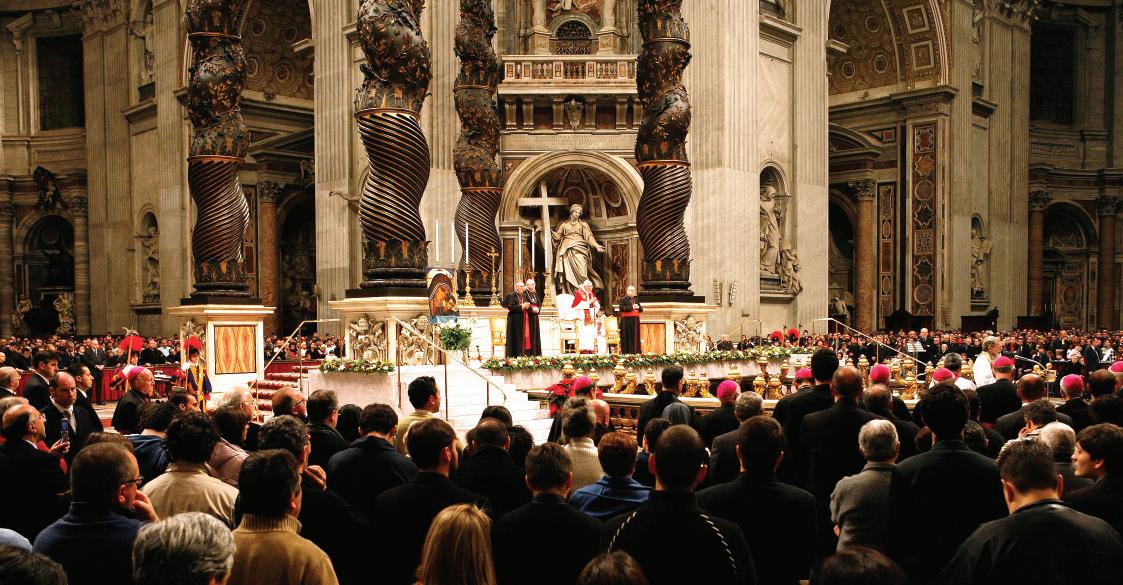
200
on
THERE was a festive atmosphere in St Peter’s Basilica when Pope Benedict XVI met with the Neocatechumenal communities of Rome on Saturday January 10.
He greeted the 500 or so communities from some 103 parishes who were celebrating 40 years since the beginning of ‘The Way’ in Rome.
“Your lively presence in such great numbers bears witness to the wonders worked by the Lord over four decades,” the Pope said in his speech.
“It also indicates the determination with which you strive to continue the journey you have begun, a way of faith in the footsteps of Christ and of courageous witness to his Gospel.”
Many of those present were being sent by the Holy Father from their own parishes to help other parishes, often with a high proportion of the poor and migrants on the outskirts of Rome.
The Holy Father welcomed the initiators of the Neocatechumenal Way, Kiko Arguello, Carmen Hernandez and Fr Mario Pezzi, and spoke of the rich fruits which have appeared through the Neocatechumenal Way in many countries.
“How can we not bless the Lord for the spiritual fruits which, through the method of evangelisation implemented by you, were able to be gathered during these years? What fresh apostolic energy has been aroused both among priests and among lay people!
“How many men and women, and how many families, who had gone far away from the ecclesial community or had abandoned the practice of Christian life… have been helped to find again the joy of faith and the enthusiasm of evangelical witness!”

Kiko Aguello introduced the assembly to the Holy Father, and emphasised that many large families were gathered there because they had discovered the truths of Pope Paul VI’s pioneering encyclical on the transmission of life and artifical contraception issued in 1968 of Humanae Vitae and the joy of being open to life.
Also present for this joyful occasion were some two hundred families chosen from all over the world to go on mission wherever God
wills – one, for the aboriginal mission in Daly River south of Darwin, seven others for Australian cities, and two for Alotau in Papua New Guinea.
A highlight for these Neocatechumenal missionary

families was the personal apostolic blessing from Pope Benedict.
Neocatechumenal missionary families see their experience as a confirmation of the will of God that they leave everything to begin a new life wherever the Lord wishes, taking with them their children and the faith that the Church has given them.
“The words of Jesus,” Pope Benedict told them, “strongly invite us not to be discouraged in the face of difficulties, not to look
The Neocatechumenal Way was established by young Spanish artist Kiko Arguello together with colleagues Carmen Hernandez and Fr Mario Pezzo after Arguello went to live in the slums of Madrid in the early 1960s.
Today, tens of thousands of small local communities all over the world meet weekly in their parishes to study the Bible and, on Saturday evenings, attend their own distinctive liturgy which was approved by the Vatican in 2008. ‘The Way,’ as it is often called, offers a distinct approach to catechesis and is seen by Church authorities as a key agent of the New Evangelisation.
for human success, and not to be afraid of incomprehension and even persecutions.
“Above all they encourage us to put our trust only in the power of Christ, to take up our cross and follow the footsteps of our Redeemer.” It was a moving moment when they all held aloft their silver mission crosses to be blessed by the Holy Father.
The 25,000 neocatechumens who had come to St Peter’s were also celebrating with the Holy Father the definitive approval of the Statutes of the Neocatechumenal Way on the Feast of Pentecost 2008 by the Pontifical Council for the Laity.
It was fitting to celebrate the official recognition by the Church of this charism (which is a fruit of the Second Vatican Council) in the same building where the Bishops of the world met, prayed, and debated for three years. The new life of which the Council spoke, which is truly ‘Christ Light of the nations’ was clearly evident in this great assembly, and in the large number of children present.
All were reminded by the Pope that “to help the men of this our time to meet Jesus Christ, man’s Redeemer, constitutes the mission of the Church and of every baptised person.
“The Neocatechumenal Way is part of this ecclesial mission as one of many ways raised up by the Holy Spirit through the Second Vatican Council for the new evangelisation.”
The Holy Father expressed his gratitude to all the itinerant catechists and to the Redemptoris Mater Seminary of Rome – which has been the inspiration for the two Redemptoris Mater seminaries already established in Perth and Sydney, and another 70 around the world.
He spoke of the precious service the new priests are giving to the evangelisation of the world.
“It is a true springtime of hope for the diocesan community of Rome and for the Church,” he said.
Fr Eric Skruzny, the Rector of Redemptoris Mater Seminary, Sydney, was formerly Vice-Rector of the Redemptoris Mater Seminary in Morley..
will again be hosting the screening of the informative but thorough Catechism DVD Series by FR JOHN CORAPI
at the Catholic Pastoral Centre in Harold St. Highgate, starting on Monday the 2 February at 7.30pm. All Catholics are heartily encouraged to attend this series, since, as Fr Corapi said in a recent communication. 'Many saints will be forged in the crucible of the coming years. Make sure you are among them.' Time is short.
There is ample parking on the grounds and light refreshments will be provided.

- Page 9
How to be a real man for your kids in a hostile world.
- Page12

For one young Australian on the east coast, it was all too easy to join the throng of happy young Catholics on Sydney’s streets when the Pope came to town for World Youth Day in July last year. But for Justine O’Connell, 33, the World Youth Day pilgrimage experience was just beginning…
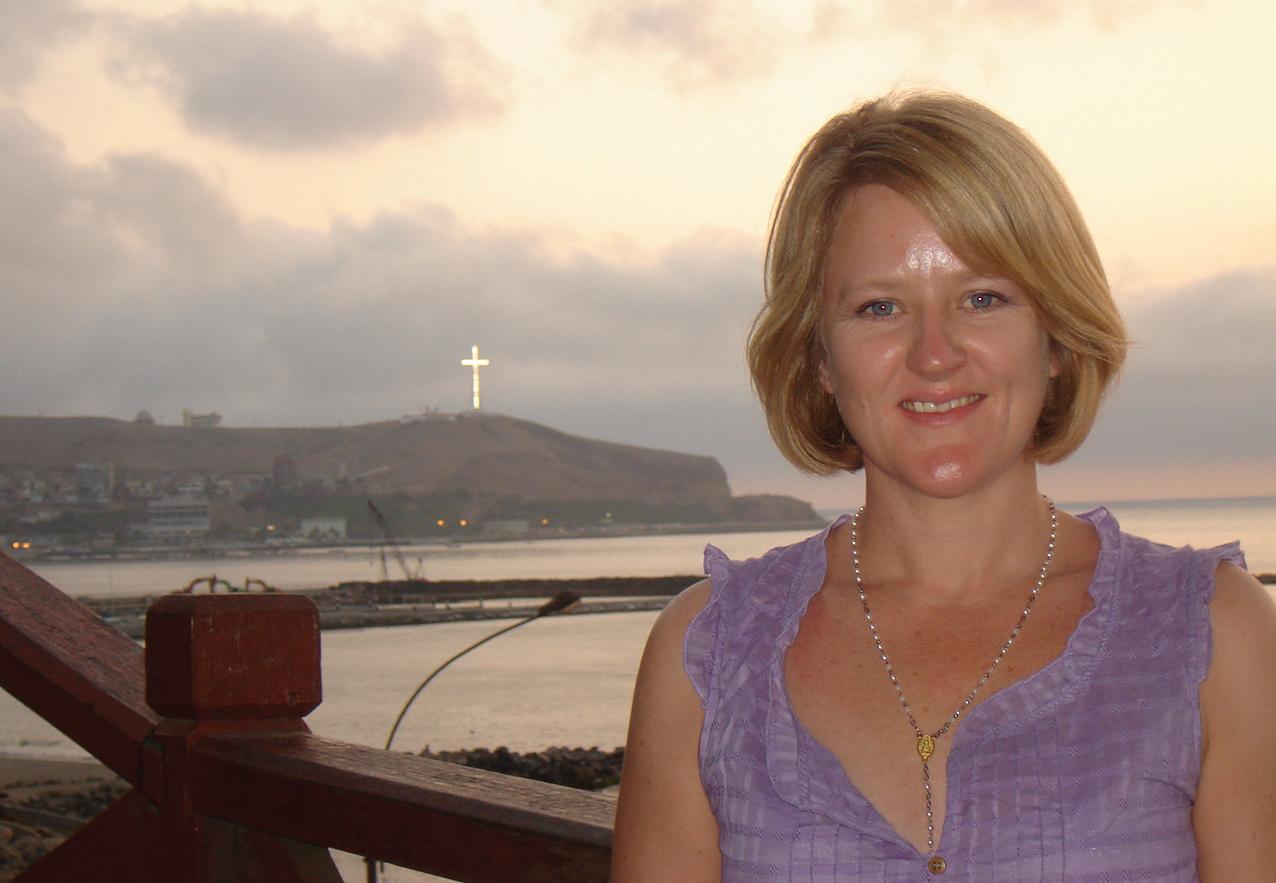
In the ‘Vocations Expo’, one of the permanent fixtures at World Youth Day – a huge pavilion lined with booths offering information and advice on potential spiritual life paths – one pilgrim found a phone number that would open up doors overseas.
Within days this polished young health professional had made inquiries both locally and internationally seeking a place to volunteer while on holiday.
Despite being turned away from her original dream volunteer destination, Brazil, on account of it being ‘too dangerous,’ her path was diverted to a company that organises volunteer programs (CrossCultural Solutions).
By October, Sydney University Masters student in Public Health Justine O’Connell, 33, had booked the flights for a three-week holiday in South America to exotic locations including Argentina, Uruguay and Brazil.
Her trip was to finish in Lima, Peru with two weeks of volunteering with the Mother Teresa’s Home for the Dying and Destitute (Hogar Nuestra Señora de la Paz de la Madre Teresa de Calcuta) and all with six months of WYD ending.
For this middle child of three girls, originally from Newcastle and working as a full-time sonographer at a Sydney hospital, her time in Peru still brings tears to her eyes.
But they are not the tears of shock, which trickled down her cheeks upon entering a room full of abandoned, disabled children she would care for last December. These tears are of helplessness that well up when she mentally revisits the suffering children she once helped for a short time.
“A lot of the children had cerebral palsy, muscular dystrophy and one girl had spina bifida,” she said.
“The first day I saw all the children I shed a tear. It was overwhelming and quite confronting, seeing 20 all in one room at
once and knowing that they’re abandoned and really in need, and if it wasn’t for the nuns and locals they’d have nothing.”
In 1973, this Peruvian hospice of Mother Teresa became operational. Today there are nine Sisters of Charity from all over the world including Africa, India and Colombia as well as local nuns who run the hospice. Doctors, dentists, and physical therapists are on staff to regularly attend to the children as well as over 100 disabled adolescent and adult male patients in other wards.
In 1999, Mother Teresa’s Home in Peru started welcoming volunteers all yearround to help feed, clothe and bathe the patients, change clothing and bed sheets as well as help the trained staff with the physical therapy sessions.
After arriving at the Mother Teresa Home at 8am, the volunteers’ routine would begin by feeding three to four children by hand.
Given the conditions of the young and infirm, this was ‘quite time consuming’ as some had feeding tubes while others who had cerebral palsy had no hand and mouth coordination making them completely reliant on others for help to survive.
After changing their clothes and nappies, Miss O’Connell would then take one child to the physiotherapy room where she would do exercises with some of the children to improve their muscle strength.
“I bonded with a two and half year old called Mila with cerebral palsy. She couldn’t sit up or walk, [so I] would massage her hands and get her to flex her legs to get her to move or play with the ball,” she recalled.
“Being profoundly intellectually and physically disabled you don’t need to communicate with words - it’s with human touch. Disabled children are very receptive to affection, [all] children need love but disabled children even more so.”
After these activities, the volunteers
would spend time changing linen, remaking beds and folding laundry with the Sisters while praying the Rosary. They would then help feed the children a lunch of pureed food before leaving the House at 12.30 pm. Despite working only half-days, the work was “very psychologically draining”, shel said. When the volunteers would leave for lunch, there would be families begging the Sisters for lunch outside the big high security bars. Some local teenagers would come in and receive a meal in exchange for volunteer laundry or cleaning work, she said.
“Abandoned and in need, if it wasn’t for the nuns they’d have nothing.”
According to a Cross-Cultural Solutions’ fact sheet regarding Mother Teresa’s Home for the Dying and Destitute, 54 per cent of the country’s 27 million inhabitants live in poverty - which the government defines as a ‘family of four living on less than $2 a day.’ Nineteen per cent of the Peruvian population lives in absolute poverty, which is defined as ‘a family of four living on less than $1 a day.’
“God has given us such a privileged life [in Australia],” Miss O’Connell said, reflecting that it’s important “to be able to detach yourself and continue with your old life - my place is here ... I think it’s my vocation to be charitable towards others which is one of the most important virtues.”
Looking back now, Miss O’Connell says her World Youth Day ‘lasted about six months.’
“I wanted to grow spiritually, strengthen my faith further. That was primarily why I wanted to go with a Catholic organisation,” she said.
But going to a country where 90 per cent of the population is Catholic also proved to have a positive impact, as it was constantly visible outward expressions of faith that moved her, she said. The children in the street, who were given Rosary beads by the nuns, would wear them around their necks. The majority of cars would hang Rosary beads on their rear view mirror. When driving down the street, one would pass grottos to Our Lady in the middle of the road. On a hilltop there’s a giant crucifix that’s illuminated by night.
“You wouldn’t notice it during the day, but at night you can see it. It’s really uplifting to see these constant reminders as you’re walking around living the day,” she said.
Although it’s difficult to define exactly how the trip has impacted upon her, Miss O’Connell knows it has.
“On a personal level, it’s made me realise I’m capable of dealing with a child with needs. On a spiritual level, I’ve got more trust in God now. Before I went, I was so worried about safety and absolutely nothing happened to me. And when I got back to work, a colleague of mine who’d been to South America said he got mugged eight times on his trip. And I was walking around by myself and nothing happened to me,” she said incredulously.
“It’s given me more strength and confidence to deal with the unknown ... I’m always reflecting on my experience there and thinking about the children. People with healthy children are so blessed.
“If you’re fortunate enough to get married - it’s God’s Will whether you’re given a healthy child or a child with a disability. Both are equally a gift,” she said.
In the meantime, until the next combined charity vocational vacation trip to perhaps Africa or the Pacific, Miss O’Connell will keep up her night patrol with St Vincent de Paul and her hospital visits with the Legion of Mary.

- Page 9
How to be a real man for your kids in a hostile world.
- Page12

For one young Australian on the east coast, it was all too easy to join the throng of happy young Catholics on Sydney’s streets when the Pope came to town for World Youth Day in July last year. But for Justine O’Connell, 33, the World Youth Day pilgrimage experience was just beginning…

In the ‘Vocations Expo’, one of the permanent fixtures at World Youth Day – a huge pavilion lined with booths offering information and advice on potential spiritual life paths – one pilgrim found a phone number that would open up doors overseas.
Within days this polished young health professional had made inquiries both locally and internationally seeking a place to volunteer while on holiday.
Despite being turned away from her original dream volunteer destination, Brazil, on account of it being ‘too dangerous,’ her path was diverted to a company that organises volunteer programs (CrossCultural Solutions).
By October, Sydney University Masters student in Public Health Justine O’Connell, 33, had booked the flights for a three-week holiday in South America to exotic locations including Argentina, Uruguay and Brazil.
Her trip was to finish in Lima, Peru with two weeks of volunteering with the Mother Teresa’s Home for the Dying and Destitute (Hogar Nuestra Señora de la Paz de la Madre Teresa de Calcuta) and all with six months of WYD ending.
For this middle child of three girls, originally from Newcastle and working as a full-time sonographer at a Sydney hospital, her time in Peru still brings tears to her eyes.
But they are not the tears of shock, which trickled down her cheeks upon entering a room full of abandoned, disabled children she would care for last December. These tears are of helplessness that well up when she mentally revisits the suffering children she once helped for a short time.
“A lot of the children had cerebral palsy, muscular dystrophy and one girl had spina bifida,” she said.
“The first day I saw all the children I shed a tear. It was overwhelming and quite confronting, seeing 20 all in one room at
once and knowing that they’re abandoned and really in need, and if it wasn’t for the nuns and locals they’d have nothing.”
In 1973, this Peruvian hospice of Mother Teresa became operational. Today there are nine Sisters of Charity from all over the world including Africa, India and Colombia as well as local nuns who run the hospice. Doctors, dentists, and physical therapists are on staff to regularly attend to the children as well as over 100 disabled adolescent and adult male patients in other wards.
In 1999, Mother Teresa’s Home in Peru started welcoming volunteers all yearround to help feed, clothe and bathe the patients, change clothing and bed sheets as well as help the trained staff with the physical therapy sessions.
After arriving at the Mother Teresa Home at 8am, the volunteers’ routine would begin by feeding three to four children by hand.
Given the conditions of the young and infirm, this was ‘quite time consuming’ as some had feeding tubes while others who had cerebral palsy had no hand and mouth coordination making them completely reliant on others for help to survive.
After changing their clothes and nappies, Miss O’Connell would then take one child to the physiotherapy room where she would do exercises with some of the children to improve their muscle strength.
“I bonded with a two and half year old called Mila with cerebral palsy. She couldn’t sit up or walk, [so I] would massage her hands and get her to flex her legs to get her to move or play with the ball,” she recalled.
“Being profoundly intellectually and physically disabled you don’t need to communicate with words - it’s with human touch. Disabled children are very receptive to affection, [all] children need love but disabled children even more so.”
After these activities, the volunteers
would spend time changing linen, remaking beds and folding laundry with the Sisters while praying the Rosary. They would then help feed the children a lunch of pureed food before leaving the House at 12.30 pm. Despite working only half-days, the work was “very psychologically draining”, shel said. When the volunteers would leave for lunch, there would be families begging the Sisters for lunch outside the big high security bars. Some local teenagers would come in and receive a meal in exchange for volunteer laundry or cleaning work, she said.
“Abandoned and in need, if it wasn’t for the nuns they’d have nothing.”
According to a Cross-Cultural Solutions’ fact sheet regarding Mother Teresa’s Home for the Dying and Destitute, 54 per cent of the country’s 27 million inhabitants live in poverty - which the government defines as a ‘family of four living on less than $2 a day.’ Nineteen per cent of the Peruvian population lives in absolute poverty, which is defined as ‘a family of four living on less than $1 a day.’
“God has given us such a privileged life [in Australia],” Miss O’Connell said, reflecting that it’s important “to be able to detach yourself and continue with your old life - my place is here ... I think it’s my vocation to be charitable towards others which is one of the most important virtues.”
Looking back now, Miss O’Connell says her World Youth Day ‘lasted about six months.’
“I wanted to grow spiritually, strengthen my faith further. That was primarily why I wanted to go with a Catholic organisation,” she said.
But going to a country where 90 per cent of the population is Catholic also proved to have a positive impact, as it was constantly visible outward expressions of faith that moved her, she said. The children in the street, who were given Rosary beads by the nuns, would wear them around their necks. The majority of cars would hang Rosary beads on their rear view mirror. When driving down the street, one would pass grottos to Our Lady in the middle of the road. On a hilltop there’s a giant crucifix that’s illuminated by night.
“You wouldn’t notice it during the day, but at night you can see it. It’s really uplifting to see these constant reminders as you’re walking around living the day,” she said.
Although it’s difficult to define exactly how the trip has impacted upon her, Miss O’Connell knows it has.
“On a personal level, it’s made me realise I’m capable of dealing with a child with needs. On a spiritual level, I’ve got more trust in God now. Before I went, I was so worried about safety and absolutely nothing happened to me. And when I got back to work, a colleague of mine who’d been to South America said he got mugged eight times on his trip. And I was walking around by myself and nothing happened to me,” she said incredulously.
“It’s given me more strength and confidence to deal with the unknown ... I’m always reflecting on my experience there and thinking about the children. People with healthy children are so blessed.
“If you’re fortunate enough to get married - it’s God’s Will whether you’re given a healthy child or a child with a disability. Both are equally a gift,” she said.
In the meantime, until the next combined charity vocational vacation trip to perhaps Africa or the Pacific, Miss O’Connell will keep up her night patrol with St Vincent de Paul and her hospital visits with the Legion of Mary.

One of the fiercest persecutors of the Church - “My Church”, as Christ told him - St Paul was transformed by nothing less than Jesus’ love for him. Now midway through the Jubilee Year of St Paul, Perth writer Marco Ceccarelli delves into what drove the man in his mission, and in doing so, teaches us how we can grow closer to Christ in and through His Church.
■ By Marco Cecc arelli Marco CeccarelliS“SAUL, Saul, why do you persecute me?” (Acts 9: 4f) With these words the Risen Christ approached St Paul, then named Saul, as he made his way towards the city of Damascus in approximately AD 34. The Acts of the Apostles tells us of how Paul fell to the ground as he was blinded by a light from heaven and was interrogated in such a manner from the Risen Lord. To the question “Who are you, Lord?” Paul is given this answer by Jesus: “I am Jesus, whom you are persecuting. Get up and go into the city, and you will be told what you are to do.”
“I am Jesus, whom you are persecuting. Get up and go into the city, and you will be told what you are to do.”
Temporarily blinded by the dazzling radiance of Christ’s appearance, Paul obeyed and entered Damascus where he waited for his sight to return. A disciple named Ananias was ordered by God to restore Paul’s sight; upon doing so, he also baptised him. His strength regained, Paul experienced a sudden change of perspective in his life and from his position as persecutor of the young Christian Church, he began preaching the love of Jesus Christ in the synagogues: this was to be the day of his conversion.
Paul was to become one of the most notable missionaries and passionately devout servants of the Catholic Church as he began proclaiming the kerygma to the surrounding nations, i.e. that Christ had been crucified and raised from the dead and that this had been foretold in the Scriptures. Paul, the vessel through which Jesus Christ reached and revealed the mystery of faith to the gentiles, engaged in three missionary journeys throughout his life and was the author of fourteen epistles, preaching in the lands of Asia minor and into Europe, where he was martyred, in Rome, AD 67.
The Apostle Paul stands as one of the great figures of the history of the Catholic Church up to whom every Christian is invited to look. Prompted
by Pope Benedict XVI’s invitation to celebrate a special Jubilee year to mark the bimillennium of Paul’s birth, we find ourselves in the middle of this Pauline Year which began on June 28, 2008 and will conclude on the June 29 this year.
Furthermore, this Sunday is the feast of the conversion of St Paul, a day in which we remember Paul’s vision of Christ on the road to Damascus and the transformation of his thinking and entire life.
Thus the invitation of the Holy Father, supported by Archbishop Barry James Hickey, calls us, as a Christian community, to regard the figure of St Paul and to contemplate his words and deeds through the observation of the Acts of the Apostles and the Pauline Letters of the New Testament.
In order to do this however, we must first ask ourselves one fundamental question: Who was Paul? or as the Holy Father reaffirmed in his homily for the Opening Mass of the Pauline Year: Who is Paul?
Paul, originally named Saul, was born at Tarsus in Cilicia (now southern Turkey) between the years 7 and 10 AD. He was of a Jewish family of the tribe of Benjamin and was also endowed with Roman citizenship (a right he often claimed in his defence when arrested, Roman citizens could not be imprisoned without a trial, nor could they be scourged or crucified). The Acts of the Apostles tells us that Paul received a thorough education in Jewish law in Jerusalem under the guidance of one of the most distinguished teachers of his generation, a Rabbi named Gamaliel (Acts 22:3).
As he grew according to the Jewish law, Paul became a bitter persecutor of Christians who were regarded as heretics by the Pharisees and was a bystander at the stoning of Stephen, the first Christian martyr. From Jerusalem, he sought to persecute Christians abroad until on the road to Damascus his mind was opened to the Truth of the Christian faith and was chosen by Christ to become the Apostle of the Gentiles.
From this point on, Paul embarked on a series of missionary journeys along the coast of Asia Minor with the intention of converting people to the Christian faith. Beginning his preaching in Damascus,
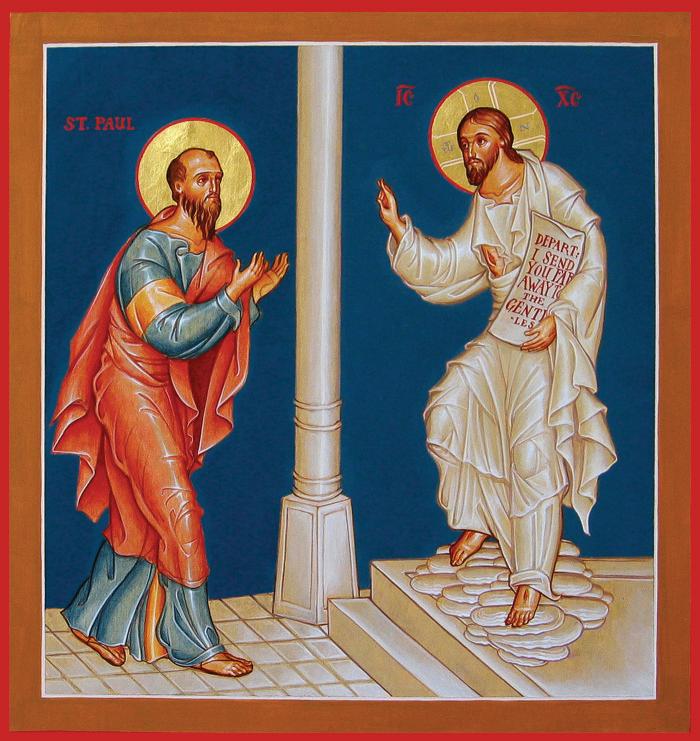
some of the most notable places he visited were the Church of Antioch in Syria, (where for the first time the Gospel was announced to the Greeks and where the term ‘Christians’ was coined) Cyprus, Pisidia, Laconia, Galatia, Macedonia and Greece. The most famous were the cities of Ephesus, Philippi, Thessalonica, Corinth, Berea, Athens and Miletus. The dates of his travels range from approximately AD 39 to AD 58. During this time, he wrote numerous letters, also known as epistles, to Christian congregations and individuals. These can be found in the New Testament under the titles of Romans, First Corinthians, Second Corinthians, Galatians, Ephesians, Philippians, Colossians, First Thessalonians, Second Thessalonians, First Timothy, Second Timothy, Titus, Philemon and Hebrews.
Paul is represented in the Bible as a person of great dedication, capable of pursuing his ideals without regard for the cost.
Despite the hostility he often met with throughout his journeys, Paul never lost the zeal to announce the kerygma; he himself recalls having endured “labours… imprisonment… beatings… numerous brushes with death… Three times I was beaten with rods, once I was stoned, three times I was shipwrecked, in dangers from robbers, dangers from my own race, dangers from Gentiles, from false brothers; in toil and hardship. And apart from these things there is the daily pressure upon me of my anxiety for all the Churches” (II Cor 11: 23-28).
He also referred to the opposition from the Jews as “the thorn in my side” (2 Co 12:7). Discouraged as he may have been through these hardships, Paul was well aware that the proclamation of the Good News and the suffering for Christ’s sake were inseparable.
He knew that his call to be Apostle of the gentiles was also a call to suffering; suffering which he was ready to endure without rebellion, such was the love that Christ had shown to him and that he was ready to repay.
Paul was a gifted speaker and writer whose intellectual capacity was often met with an ability to adapt his teaching to the needs of his audience. It is through this balance that he was able to communicate to others the kerygma he had
received, instructing them on how to live as Christians and be at one with Christ.
Paul often attributed all his capacities and successful endeavours in his life to Jesus Christ who had illuminated him and opened his heart to the Christian faith. “I live by faith in the Son of God who loved me and gave himself for me” (Gal 2: 20).
In the same homily for the opening of the Pauline Year, Pope Benedict affirmed that nothing fulfilled Paul more than being aware that Christ did not face death for something anonymous but rather for love of him, and that, as the Risen One, he still loved him.
Thus Paul’s experience of faith was to apprehend that he was loved by Jesus Christ in a very personal way.
This love became the “law” of his life, and in a deeper sense, the freedom of his life, a freedom he used wisely to render possible the Universal spread of Christianity, and to lay deep in the hearts of European churches the solid bases of Christendom.
For this Pope Benedict invites us to ask ourselves: Who is Paul? We remember the words with which Christ approached Paul on the road to Damascus: “Saul, Saul, why do you persecute me?”
Paul was persecuting the young Christian Church, a Church with which Jesus identifies in a single subject.
The Holy Father, in this Pauline Year, invites all Christians to encounter Christ through prayer, through reading the Sacred Scripture and in the participation of the liturgical life of the Church.
Thus as Christ’s Church, on this Feast day of Paul’s conversion, we ask ourselves: Who is Paul? Who is Paul for us? What meaning does Paul’s extraordinary life have for us?
The Holy Father, in this Pauline Year, invites all Christians to encounter Christ through prayer, through the reading the Sacred Scripture and in the participation of the liturgical life of the Church. For only through this personal relationship with Him, only through this mystic union of the soul with the Risen One, may we truly become Christians.
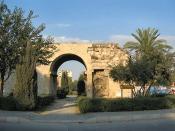
7-10 AD
12-15 AD
Paul goes to Jerusalem and is educated by Rabbi Gamliel
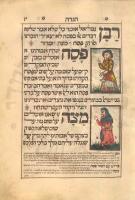
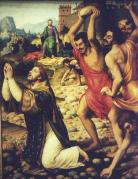
Birth of Paul in Tarsus 0 10 AD 20 AD


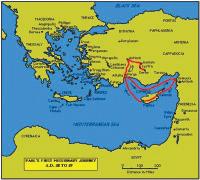

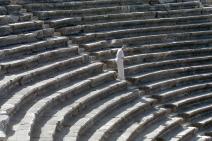

In accordance with Pope Benedict XVI’s proclamation of this Jubilee year dedicated to St. Paul, Archbishop Barry James Hickey has designated this Sunday, 25th of January 2009, Feast of the conversion of St. Paul, as a day on which a Plenary Indulgence may be gained. Those seeking to gain a Plenary Indulgence may attend a designated church and participate in a specific function or public devotion in honour of St Paul. The remaining day in which a Plenary Indulgence may be gained is June 29, 2009, day on which the Pauline Year will close. Listed below are the eight parishes which have been asked by Archbishop Hickey to prepare special devotions to St. Paul so that people from other parishes may attend their local Mass but also obtain a plenary indulgence: St Paul’s Church, 104 Rookwood St, Mt Lawley. Contact on (08) 9271 5253.
❐ Sts Peter and Paul Church, Redemptorist Monastery, Vincent St, North Perth. Saturday January 24: Reconciliation - 10am-12 noon, 4-4.30pm, 5.30-6pm. Sunday January 25: Masses - 7am, 9am, 10.30am, 6pm. Reconciliation - after all Sunday Masses and 5.30-6pm.
❐ St Joachim’s Pro-Cathedral, Shepperton Rd, Victoria Park. Saturday January 24: Reconciliation - 5-5.45pm. Vigil Mass 6pm.Sunday January 25: Masses: 8am, 9.30am, 11am, 6pm.
❐ St Simon Peter Church, Prendiville Ave, Ocean Reef: 2pm Holy Hour of St Paul including Exposition, Benediction, readings, hymns, prayers and periods of silence in the Taize style, followed by afternoon tea in the Parish Centre. Mass times: 8am, 10am, 6pm.
❐ Basilica of St Patrick, Adelaide St, Fremantle. Contact on (08) 9335 2268.
St Jerome’s Church, cnr Rockingham Rd and Troode St, Munster. Contact on (08) 9418 1229.
❐ St Joseph’s Church cnr Gordon and Wellington Sts, Northam. Saturday January 24: Reconciliation - 11am12.30pm. Vigil Mass - 6.30pm. Sunday January 25Reconciliation - 7-7.50am. Mass - 8am.
❐ St Mary’s Church, cnr Brockman and Porter Sts, Kalgoorlie. For further information contact on (08) 9021 2100.
The usual conditions for obtaining a plenary indulgence are:
1. Praying the Lord’s Prayer and the Creed, cleansed by the Sacrament of Penance and nourished by Holy Communion.
2. Prayers for the intentions of the Holy Father.
The sick and those unable to leave their homes may gain the indulgence if they spiritually unite themselves to a Jubilee celebration in honour of St Paul, praying to God for the Unity of Christians.
A Plenary Indulgence may be gained once per day and may be applied to self or the deceased.

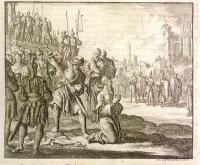
No longer alone, I thank and pray to God constantly
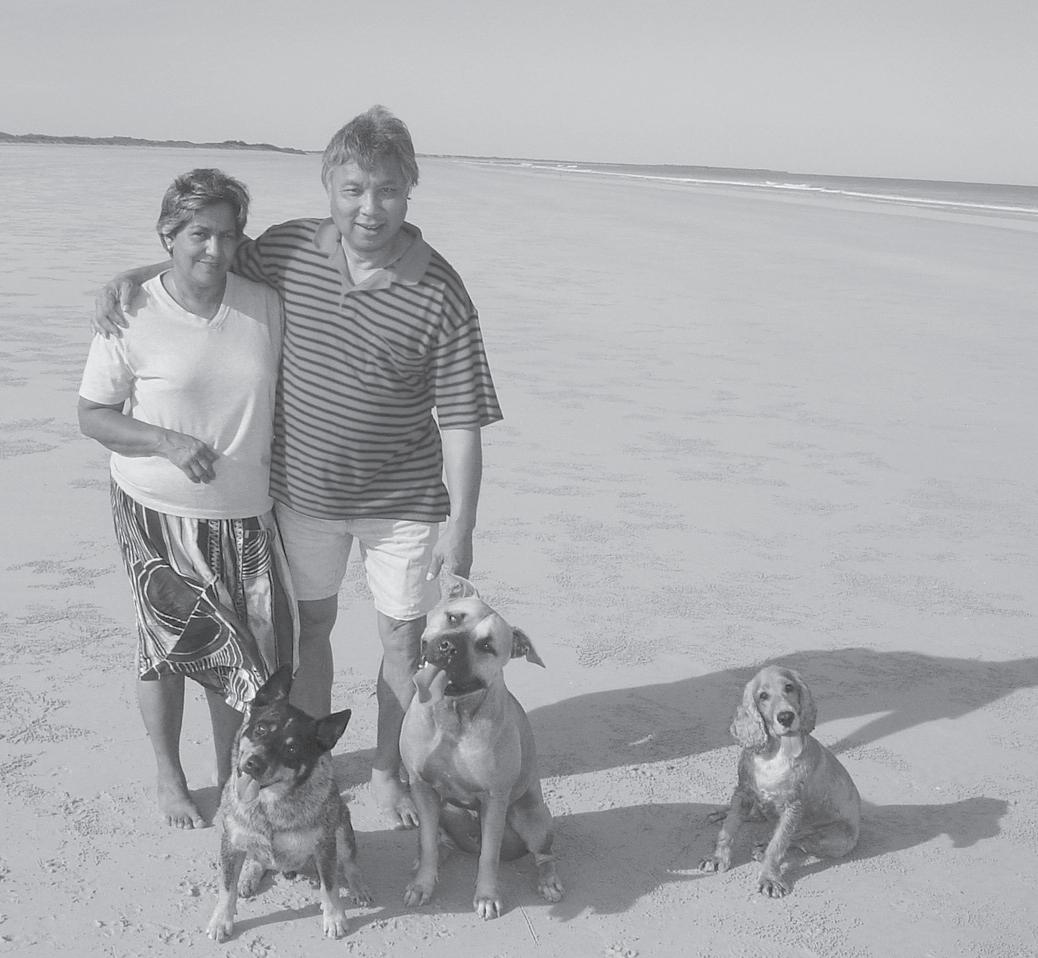
Ido not have a set time to pray because I talk to the Lord all the time. I thank the Lord for what I am able to do. I enjoy doing what I can for Him. If there is something that I have to do and am not sure if I can, I call on God to help me.
I thank God for this beautiful gift of faith which He has given to me. It means the world to me. I know I am who I am today because of what the Lord has done for me. My prayer is one of thanksgiving when I go to daily Mass. As I listen to every word the priest says about what the Lord has done for me, I can’t thank Him enough.
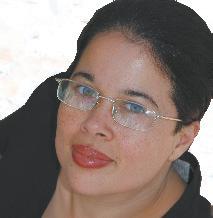 with Debbie Warrier
with Debbie Warrier
I constantly pray for my family, friends, world peace, the sick, the lost and the lonely. My faith has given me so much strength throughout my pain and suffering. I no longer feel alone because I know God is always with me.
He is my best friend.
In 1978 I attended a prayer and worship meeting. I was feeling tired and angry.
I also had numbness in my hand that hurt at night.
Two ladies from the group prayed over me and I felt this heat going through my hand. The next morning the pain in my hand was gone, along with the heaviness in my heart.
Around that time Peter and I also owned a restaurant. We took out a bank loan to get it started. I did most of the cooking. The business was a success.
Then I became sick and had to have two major operations. The doctor advised me to stop working. We sold the business and still had to pay the loan back. In the end we didn’t come out with much.
Peter started work as a Real Estate Agent. He wasn’t doing very well as Perth was in a recession. One day I opened the fridge wondering what we were going to have for our evening meal.
All we had was two slices of bread and some butter. My heart was so heavy and I cried. I went down on my knees and prayed to the Lord to help me feed my family.
Ten minutes later there was a knock at the door. I opened it and found a man who we used to buy all our vegetables from for our restaurant. He expressed concern that he had not seen us for four months.
I told him I had been ill and we had to sell the business.
He asked me if I wanted some vegetables and I humbly told him I had no money. He told me he didn’t want any money and went to his truck.
When he returned he had a big box filled with vegetables that he could not sell at the markets.
He had never been to our house before and I asked him how he knew where we lived.
He told me he didn’t know but somehow had found his way there. I would not say that my life has been plain sailing. I still have had my fair share of pain and suffering. However, Jesus has always been there. He loves me and strengthens me.
debwarrier@hotmail.com

There have been some interesting surveys in Britain recently. They can be even more interesting when their findings are put together, such as these three sets of findings published within days of each other.
The first, from The Sunday Times on November 30, published under the heading, “Britain on top in casual sex league” claimed:
“British men and women are now the most promiscuous of any big western industrial nation, researchers have found …
“The researchers behind the study say high scores such as Britain’s may be linked to the way society is increasingly willing to accept sexual promiscuity among women as well as men. …
“Britain’s ranking was ascribed to factors such as the decline of religious scruples about extramarital sex, the growth of equal pay and equal rights for women and a highly sexualised popular culture.”
This does not surprise me.
Pronounced features of British culture in the last few years has been hedonism, spiced with nihilism, of literally demented proportions. Meanwhile, under progressive and politically-correct influences government taxation policies appear to have been deliberately and strategically structured to destroy marriage and families.
At a speech in Brighton in April, 2008, Family Division judge Mr Justice Coleridge, on of the most senior Family Law judges, said: “In some areas of the country, even including the more urban parts of the sleepy west in which I operate, family life in the old sense no longer exists… I suggest the general collapse
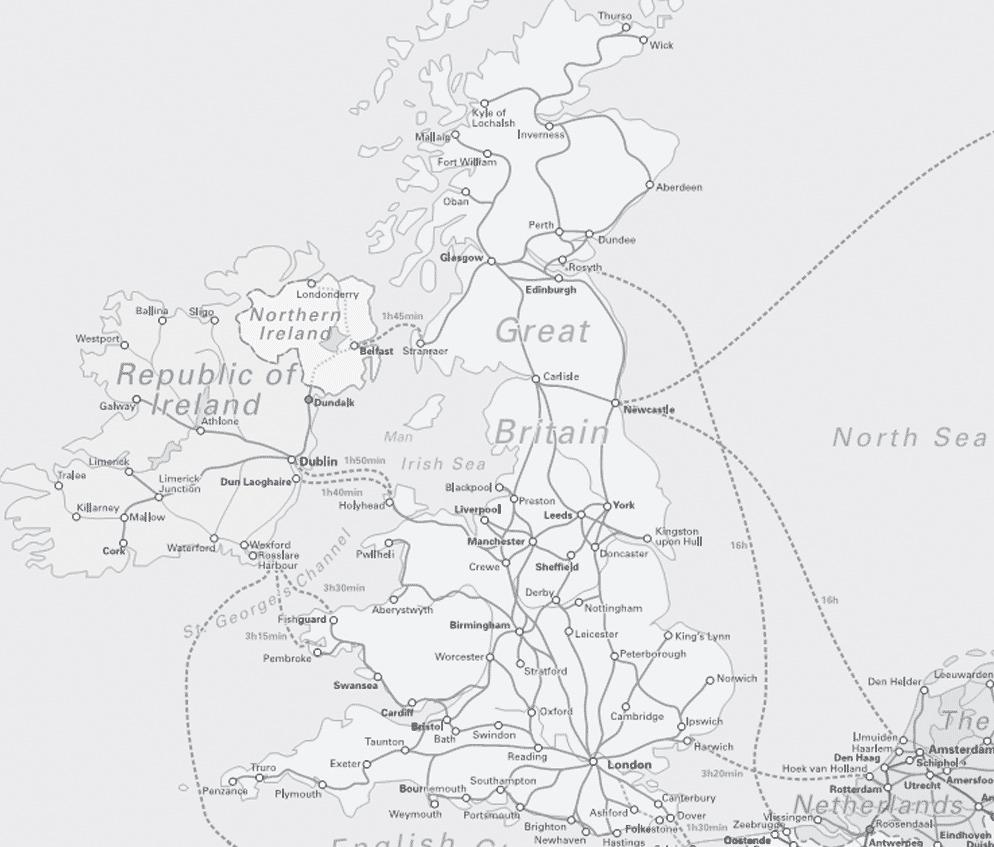
of ordinary family life, because of the breakdown of families, in this country is on a scale, depth and breadth which few of us could have imagined even a decade ago.”
In July, 2008, it was reported from the Office of National Statistics that married adults had become a minority for the first time since records began to be kept. In 1995 married couples had made up 56.2 per cent of the population. This had declined to 50.3 per cent in 2005, and to less than 50 per cent in 2006. Shortly after this it was revealed that a majority of British babies were now born out of wedlock, though the number among immigrants remained a tiny minority.
This is the country where one member of the underclass thrust into media prominence explained that she referred to as, and regarded as, “twins” those of her children who had the same father.
The second survey suggested a vast
increase in loneliness since even the 1970s. A report stated: “Analysis of official data shows that many more people live in isolated existences than in previous generations, as the old ties of family, work and community life are severed. Far more people live alone, are single and are more fearful of their communities than they were more than three decades ago.”
This sort of finding may perhaps be dismissed as “soft” – it is hard to know how loneliness is to be accurately measured. The third of our statistics, however, is rather more definite: more pensioners die of the cold in Britain than in any other country in Europe. Official figures revealed 25,000 such deaths last winter. Pensioners in colder countries such as Finland, Austria or Denmark are more likely to stay healthy through the winter than Britons. Possibly they have families to care for them.
 By Fr John Flader
By Fr John Flader
I have always wondered whether the saints in heaven all experience the same reward, or whether some receive more than others. Has the Church taught anything on this?
Your question is not just an idle query about an academic matter. The answer has a great bearing on how we live our lives here on earth. If everyone will receive the same reward in heaven some people will be tempted to ask: “Then what is the point of making an extra effort to do more, if we are not going to be rewarded for it? We may as well do the minimum and stay out of mortal sin so that we at least get to heaven, where we will receive the same reward as everyone else.”
Has the Church said anything about this? It has. It has taught that each person will be rewarded differently in heaven according to their works.
We can begin with Scripture, where we listen to Jesus himself, who said regarding the final Judgment, “For the Son of man is to come with his angels in the glory of his Father, and then he will repay every man for what he has done”
(Mt 16:27). St Paul writes, “He who plants and he who waters are equal, and each shall receive his wages according to his labour.” (1 Cor 3:8)
And speaking of the glory of the resurrected body, St Paul writes, “There is one glory of the sun, and another glory of the moon, and another glory of the stars; for star differs from star in glory. So is it with the resurrection of the dead.” (2 Cor 15:41-42)
Ludwig Ott, in his book Fundamentals of Catholic Dogma, lists as a dogma of faith the following proposition: “The degree of perfection of the beatific vision granted to the just is proportioned to each one’s merits.” The Council of Florence (1439), in the Decree pro Graecis declared that the souls of the perfectly just “clearly behold the Triune and One God as he is, but corresponding to the difference of their merits, the one more perfectly than the other.”
In the 16th century, the Council of Trent, in the Sixth Session, Chapter 16, taught that God will reward the good works of the justified person, always remembering that these good works are carried out through the grace and merits of Jesus Christ. The Council recalled the promise of Jesus: “And whoever gives to one of these little ones even a cup of cold water because he is a disciple, truly, I say to you, he shall not lose his reward.” (Mt 10:42)
The Council went on to define as a dogma of faith: “If anyone says that… the one justified by the good works that he performs by the grace of God and the merit of Jesus Christ, whose living member he is, does not truly merit an increase of grace, eternal life… and also
an increase of glory, let him be anathema.” (Can. 32) It is clear from this that there are different degrees of glory or perfection of the saints in heaven, depending on the merit of their good works on earth. This is only to be expected. God would be unjust if he did not reward some more than others, according to their works.
We all expect that Our Lady, St Joseph, the Apostles, the martyrs and so many other “great saints” will be somehow “higher” in heaven than the rest of us. It would not be right if it were otherwise. But does this mean that some will be happier in heaven than others? Not necessarily. In heaven all the saints are completely happy, overwhelmed by the love and glory of the Blessed Trinity, and in addition the joy of being in the company of Our Lady, the angels, all the other saints and their loved ones.
An analogy that is often given is vessels of different sizes, all full to the brim. By our good works we increase, as it were, the size of our vessel so that our capacity for happiness increases. In heaven, everyone’s vessel will be completely full, so that all will be completely happy and no one will have a sense of lacking anything.
And there will be no envy of others’ happiness or glory since everyone will regard others’ good as their own.
So there is every reason to make an effort to do all the good we can on earth, to store up as much treasure as we can in heaven (cf. Mt 5:19). Then, in addition to the reward we receive here on earth, we will also receive a greater reward in heaven.
-director@caec.com.au
Every cent raised by Catholics does nothing less than change lives as the Catholic Church’s charity arm helps poor and defencelesss help themselves.
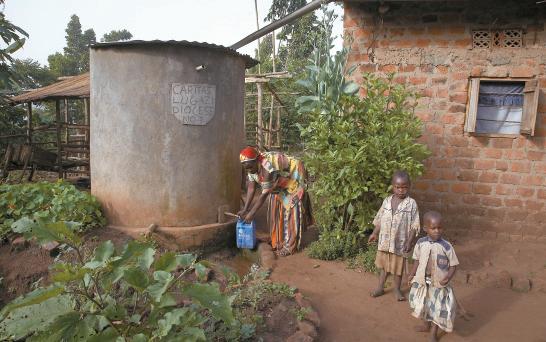
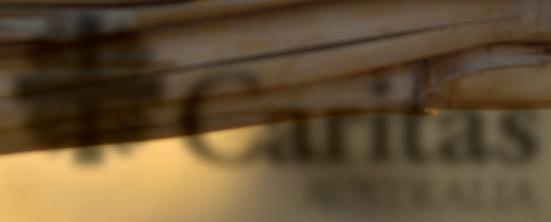


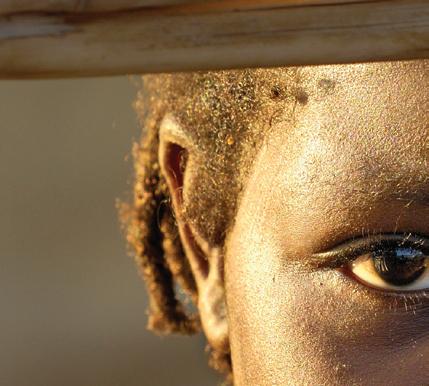
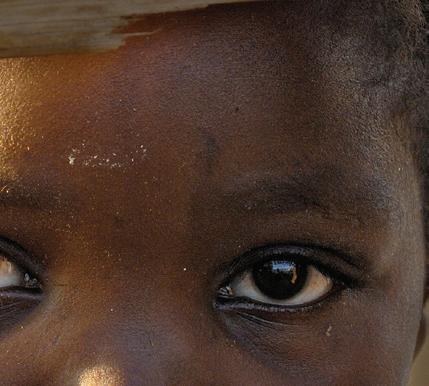



The first in a series of articles on the work of Caritas.
TEOPISTA and her husband, subsistence farmers in Uganda, worked tirelessly to provide for their seven children but it was a daily struggle.
“My family ate one meal a day. Sometimes we went without food when we had no money and nothing to cook,” she says.
“We couldn’t afford school fees so sometimes the children were sent home from school.”
In Uganda, where subsistence farming provides a livelihood for 80 per cent of the population, poor land management, environmental degradation and extreme variations in weather has meant that families like Teopista’s, were finding it increasingly difficult to support themselves and had little control over their future.
Many families in Kyampisi village and throughout rural Uganda suffer from poor nutrition and hygiene, leading people, especially children, to suffer from preventable diseases. Staple food crops like cassava and cooking banana were affected by pests and diseases.
Teopista’s life has changed significantly since she became involved in 2004 in the Caritas Australia supported Sustainable Agriculture Project, run by Caritas Lugazi.
As part of the project, Teopista began meeting with other local farmers for practical training in land management, organic farming techniques and rain water harvesting to maximise use of her small plot. Teopista’s rain water tank regularly saves her from making the five hour trip to collect clean drinking water.
“I learnt to keep my land fertile by making organic fertilizer, to grow organic pesticides and to look after crops and animals with food and medicine we can grow ourselves”, Teopista explains. “We learnt to construct better storage to stop pests destroying our food.”
The project gives 900 rural
Ugandan subsistence farmers training in sustainable agricultural practices and the farmers work in groups to practice the organic techniques and share knowledge on how to improve their crop yields. Caritas provides the groups with equipment, seeds, plantlets and cows and goats on a ‘revolving fund’, as well as training in hygiene and nutrition.
Encouraging the whole family unit to be involved has increased women’s leadership in the community. Teopista is now a trainer in the project, having learnt organic farming techniques and received training in nutrition and hygiene. By learning new techniques for household tasks, women no longer need to spend so much time collecting firewood.
“I was sent to learn to make energy saving stoves and now I help others make them. I can also teach farmers to start tress nurseries for firewood and animal fodder,” she says.
The groups have established
Good Samaritan Clubs which run collective gardening activities and care for those in the community with HIV/AIDS.
Teopista can now send her children to school, her family eats three times a day and her dream to one day return to school herself is closer to being a reality. She will soon be able to repay her cow with its first calf, to be given to another farmer in the group.
“We can now eat vegetables and rice and eggs from our chickens,” she says.
Teopista also has enough vegetables to sell some each week and save money for school fees.
The family has also been able to adopt, educate and care for abandoned twins.
Control over land, food production and ultimately lives, leads to self empowerment. This year’s theme for Project Compassion is ‘an environment to grow in’, and as Teopista’s experience shows, a healthy environment leads to healthy people.
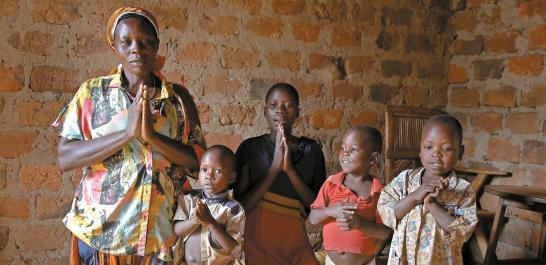
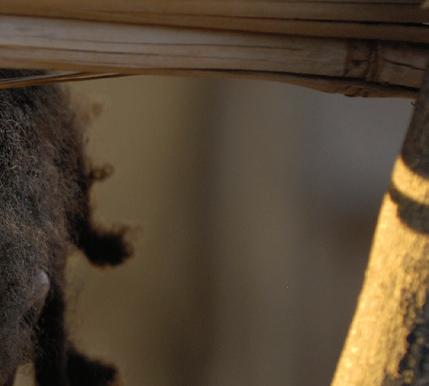






In a surprise appearance, Mexican President Felipe Calderon joined prelates from the Vatican and Mexico at the January 14 inauguration of the Sixth World Meeting of Families in Mexico City. The President characterised drug trafficking as the slavery of the 21st century and linked its rise to the breakdown of the nuclear family.
Cardinal Marc Ouellet of Quebec argued that family life faces a crisis due to the tendency in secular culture to ignore God’s design for mankind and the essential differences between men and women.
THE family based on marriage “has the right for its specific identity to be recognised and not confused with other forms of coexistence,” Pope Benedict XVI said in a video message to participants in the Sixth World Meeting of Families.
In his remarks to the 25,000 people gathered in Mexico City for the closing ceremony of that event on January 18, the Pontiff said that society should provide “adequate cultural, juridical, economic, social and health protection” to support strong family life.
The Pope mentioned specifically the need to preserve parental rights to choose their children’s schools.
He stressed that Christian parents must provide an appropriate moral education for their children, to counteract the powerful influence of “a misleading concept of freedom, in which individual caprice and subjective impulses are exalted to the point that people are enclosed in the prison of their own ego.” Genuine freedom, the Pope said, is found in fulfillment of God’s will, and that attitude must be nurtured in the young.
The family is “a school of humanity and Christian life,” the Pope told the crowd at the shrine of Our Lady of Guadalupe.
He said that Chrstian home life should be “impregnated with the presence of God,” and reminded the faithful to “pray in the family at the most appropriate and significant moments.”
Through that prayerful approach, he said, family life, “individual and family life is gradually transformed and improved.” He encouraged Christians to strengthen their own faith and spiritual lives in the home, so that they could “bring their witness of life and their explicit profession of faith to their surroundings.”
As the 6th World Meeting of Families came to a close, the Holy Father announced that the next such gathering will be held in Milan, Italy, in the spring of 2012.
Cardinal: laws reflect confusion about man, woman
MEXICO CITY (Zenit.org) - The family crisis is not just a problem of morals; it goes much deeper and is rooted in misunderstandings about the very nature of men and women, says the Archbishop of Quebec. Cardinal Marc Ouellet affirmed this on
January 14 at the Sixth World Meeting of Families, underway in Mexico City.
He spoke of the disorder in values, saying it explains certain nations adopting laws that recognise homosexual couples as marriages, and even permit them to adopt children.
This “cultural battle,” the prelate said, involves a “vision of the world without God that tries to replace the Judeo-Christian heritage,” with grave consequences at the “human, social and religious level.”
The result, Cardinal Ouellet lamented, is that added to the “growing fragility of couples are the education problems linked to the loss of models and the influence of currents of thought that reject the very bases of the family institution.”
This anthropological crisis, he said, “particularly widespread in the West,” has been promoted by ‘gender theory’, which adulterates “the reality of matrimony and the family, re-proposing the notion of the human couple starting from the subjective desires of the individual, making the sexual difference practically insignificant, to the point of trying to equate heterosexual union and homosexual relations.”
The cardinal noted that “according to this theory, the sexual difference inscribed in the biological reality of the man and the woman does not have significant influence in the sexual identity of the individuals because it is the result of a subjective orientation and a social construction.”
“Under the influence of these sometimes openly anti-Christian ideologies, certain states move to legislation that reconsiders the meaning of marriage, procreation, affiliation and the family, without taking into account the fundamental anthropological realities that give structure to human relationships,” he lamented.
“Various international organisations participate in this movement for the destruction of matrimony and family for the benefit of certain well-organised pressure groups that pursue their own interests in detriment to the common good.
“The Catholic Church strongly criticises these cultural currents, which too easily obtain the support of the modern press.”
Faced with this panorama, the cardinal proposed a rediscovery of Pope John Paul II’s Familiaris Consortio, which defines marriage “as a personal union in which the spouses reciprocally give and receive.”
It aims to reach “the very roots of reality,” the cardinal said, affirming the link between the personal love of the spouses and the transmission of life.
JERUSALEM (CNA) - The Latin Patriarch of Jerusalem, Archbishop Fouad Twal, has led a procession for peace through the streets of Bethlehem with more than 800 children, who offered their prayers for the innocent victims of the conflict in Gaza.
According to a press release, bishops from the Holy Land Coordination of the Bishops’ Conferences of the United States and of Europe also participated in the procession, as they were in the region to promote “solidarity with local Christian communities and to share in the difficult pastoral life of the Church.”
At the end of the event, the Patriarch said, “In these days in which we are witnesses of the horror in Gaza, I say to all
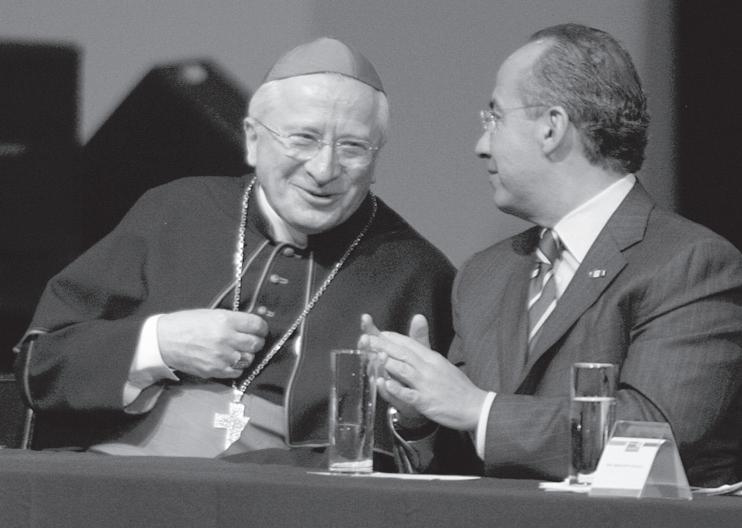
In this way, he said, the three values of marriage - procreation, faithful love and indissolubility - find their “axis” in fruitful conjugal love.
Family constitutes basis for the identity of the person and society: civil, religious leaders
MEXICO CITY (Zenit.org) - Both civil and religious authorities came together to point out that the family constitutes the basis for the identity of the person and of society, during the January 14 opening of the 6th World Meeting of Families.
During the inauguration of this international event being attended by almost 10,000 persons, Mexican President Felipe Calderón emphasised that in order to have a country with greater personal security and freedom from drugs - which he described as the slavery of the 21st century - it is necessary to strengthen the family.
In analysing the struggle against drug trafficking, Calderón noted that many drug traffickers and people living in violent circumstances have suffered from dysfunctional families.
Cardinal Ennio Antonelli, president of the Pontifical Council for the Family, for his part told the participants from five continents: “We are many and one in virtue of Christ and the Holy Spirit. [...] We represent different peoples and cultures of the People of God; Catholic families of the Church and from civil society are here.”
Cardinal Norberto Rivera Carrera, Archbishop of Mexico City and host of the Sixth World Meeting of Families, recognised different attacks against the family, but assured everyone that “the family continues as a standard-bearer of society. Mexico opens its doors to the world. Mexico, the country where Mary of Guadalupe appeared to St Juan Diego, is your family”.
of you: violence, whatever its origin, and whatever its form, must be condemned.”
“As we are gathered here in the name and in the spirit of the Prince of Peace, the Child who has been born to be the light of the world and the hope of all human beings, I want to condemn the violence in the Middle East, especially the attacks in the Gaza Strip,” he added.
Archbishop Twal later warned against the temptation of violence “because although it would seem it can resolve our problems,” it is only “a false hope. This violence only brings complications in the search for a just solution to the conflict, which is ardently desired by the people of this land and of the world.”
WASHINGTON (CNS) - Declaring that every life is “a gift from our Creator that is sacred, unique and worthy
The president of the Mexican episcopal conference, Bishop Carlos Aguiar Retes, reaffirmed that the family is the patrimony of humanity and the school of the faith. He warned, however, of dangers such as ethical relativism, poverty and laws that are contrary to the family.
He made a special call for a greater consciousness of and commitment to work for the family and society.
The inauguration of the 6th World Meeting of Families was covered by more than 500 journalists reporting to media outlets all over the world.
MEXICO CITY (CNS) - Participants at the Sixth World Meeting of Families made impassioned defenses of the traditional family while rejecting allegations from protesters and local Leftist politicians that the Catholic Church has been preaching exclusion.
Speakers on the first day of the January 14-18 meeting, which organisers say was attended by over 8000 from over 90 countries, emphasised the traditional definition of family - father, mother and childrenwhile discarding suggestions that the institution be expanded to include homosexual couples.
The meeting was organised by the Vatican’s Pontifical Council for the Family.
“The Church - we teach respect for marriage between a man and a woman because that is the foundation of the family,” Cardinal Norberto Rivera Carrera of Mexico City said during his opening remarks on January 14. His comments at the five-day meeting were echoed by other speakers, including Cardinal Marc Ouellet of Quebec City, who said during a discussion on values, “Marriage and the family have turned into a battlefield, where secularisation is attempting to injure the family.”
of protection,” President George W Bush proclaimed that January 18, the Sunday before the 36th anniversary of Roe v Wade, as National Sanctity of Human Life Day.
On this day “our country recognises that each person, including every person waiting to be born, has a special place and purpose in this world. We also underscore our dedication to heeding this message of conscience by speaking up for the weak and voiceless among us,” he said in the proclamation. Bush urged Americans “to recognise this day with appropriate ceremonies and to underscore our commitment to respecting and protecting the life and dignity of every human being.”
On January 22, 1973, the US Supreme Court handed down the Roe v Wade decision, which legalised abortion, and the Doe v Bolton decision, which lifted state restrictions on abortion. In his proclamation, the president noted the pro-life legislation he signed into law during his presidency, such as the federal law to protect infants born alive after an attempted abortion or other procedure, the federal ban on partial-birth abortion and the Unborn Victims of Violence Act.
WASHINGTON (CWNews.
com) - The United States Conference of Catholic Bishops released a letter on January 15 from Cardinal Francis George, the conference’s president, to Presidentelect Barack Obama, outlining the “principles and priorities that guide the [bishops’] public policy efforts” so as to offer “an agenda for dialogue and action.”
A similar letter was sent to the vice president-elect and members of Congress.
The foundational priority, according to Cardinal George, is the protection of innocent human life. “Most fundamentally,” he writes, “we will work to protect the lives of the most vulnerable and voiceless members of the human family, especially unborn children and those who are disabled or terminally ill.”
“We will consistently defend the fundamental right to life from conception to natural death. Opposed to abortion as the direct killing of innocent human life, we will encourage one and all to seek common ground that will reduce the number of abortions in morally sound ways that affirm the dignity of pregnant women and their unborn children.
“We will oppose legislative and other measures to expand abortion. We will work to retain essential, widely supported policies which show respect for unborn life, protect the conscience rights of health care providers and other Americans, and prevent government funding and promotion of abortion.
“The Hyde amendment and other provisions which for many years have prevented federal funding of abortion have a proven record of reducing abortions. Efforts to force Americans to fund abortions with their tax dollars would pose a serious moral challenge and jeopardise the passage of essential health care reform.”
Cardinal George also discusses seven other priorities:
● Economic challenges
The bishops “support strong, prudent and effective measures,” “advocate a clear priority for poor families and vulnerable workers in the development and implementation of economic recovery measures,” and “support greater accountability and oversight to address irresponsible abuses of the system that contributed to the financial crisis.”
● Health care
The bishops “urge comprehensive action to ensure truly universal health care coverage which protects all human life including pre-
natal life, and provides access for all, with a special concern for the poor. Any such legislation ought to respect freedom to choose by offering a variety of options and ensuring respect for the moral and religious convictions of patients and providers.”
● International affairs
The bishops support “a responsible transition in an Iraq free of religious persecution,” “early, focused and persistent leadership to bring an end to violent conflict and a just peace in the Holy Land,” “US investments to overcome poverty, hunger and disease through increased and reformed foreign assistance,” and anti-HIV efforts that are “both effectively and morally appropriate.”
In wording that accommodates different sides of the debate on climate change, Cardinal George adds, “Recognising the complexity of climate change, we wish to be a voice for the poor and vulnerable in our country and around the world who will be the most adversely affected by any dramatic threats to the environment.”
● Immigration
The bishops call for “comprehensive reform” that is “based on respect for and implementation of the law,” defends “the rights and dignity of all peoples, recognising that human dignity comes from God,” offers “a path to earned citizenship,” and is attentive to the impact of trade and development policies that foster emigration.
● Marriage
The bishops call for a recognition of marriage as “a faithful, exclusive, lifelong union of a man and a woman” that “must remain such in law. In a manner unlike any other relationship, marriage makes a unique and irreplaceable contribution to the common good of society, especially through the procreation and education of children. No other kinds of personal relationships can be justly made equivalent to the commitment of a man and a woman in marriage.”
● Education
The bishops reiterate their support for “initiatives which provide resources for all parents, especially those of modest means, to choose education which best address the needs of their children.”
● Empowerment of faith-based groups
“We will work with the Administration and Congress to strengthen these partnerships in ways that do not encourage government to abandon its responsibilities, and do not require religious groups to abandon their identity and mission.”
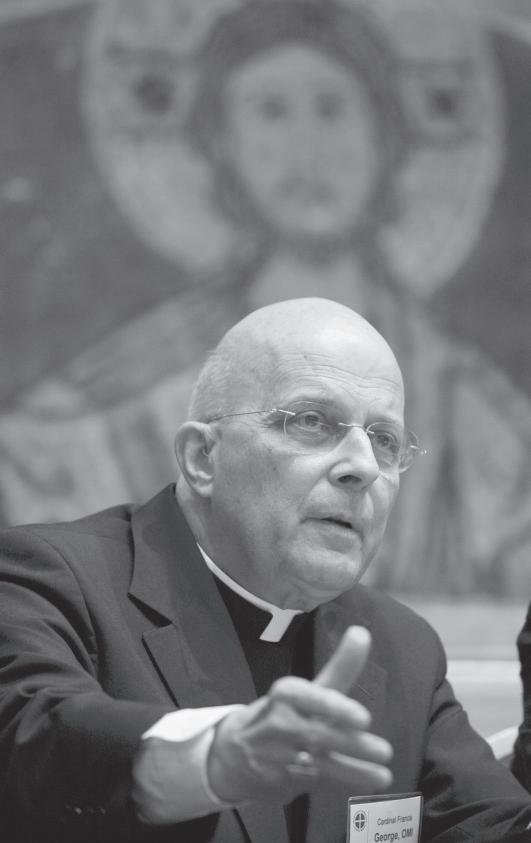
WASHINGTON (CNS) - It would be “a terrible mistake” for Presidentelect Barack Obama to reverse current policies on embryonic stem-cell research, conscience protection and other life-related matters, the president of the US Conference of Catholic Bishops told him in a new letter.
Such actions “could introduce significant negative and divisive factors into our national life, at a time when we need to come together to address the serious challenges facing our people,” said Cardinal Francis E. George of Chicago in a letter dated January 16 and made public on January 19.
The letter came less than a week after Cardinal George sent another letter to Obama, Vice President-elect Joseph Biden and each member of Congress outlining the bishops’ broad policy agenda as the new administration and Congress begin their work.
“I expect that some want you to take executive action soon to reverse current policies against government-sponsored destruction of unborn human life,” Cardinal George said. “I urge you to consider that this could be a terrible mistake - morally, politically and in terms of advancing the solidarity and well-being of our nation’s people.”
ROME (CNA) – The rite of Penance needs to be more closely observed and taught by the clergy, it has been revealed after the Vatican congregation in charge of overseeing the Sacrament of Reconciliation and the granting of indulgences finished a conference in Rome.
The aim of the meeting was help people recover “the joy of the personal experience of the mercy of God” and to encourage priests to make this a priority.
According to Vatican newspaper L’Osservatore Romano, the event which took place January 13 and 14 was, in the words of the head of the Apostolic Penitentary, Cardinal Francis Stafford, an occasion “to
offer to the men and women of today, immersed in a post-modern culture, the opportunity to reflect profoundly on their interior life and ask God for forgiveness for the ‘abuse of power’ that is in their hands.”
“Our objective,” he said, “is to reflect deeply on the pastoral meaning of our Tribunal and why the Church, in her wisdom, created this tribunal of mercy. My hope is that the answer has been clear in these two days of meeting and conversation.”
The Vatican newspaper also quoted Manlio Sodi of the Salesian Pontifical University.
Mr Sodi led a round-table discussing during the Symposium .
He said that the issue of penitential services and general confessions, which are more common in North America, are “rites that fundamentally alter the very foundations of the personal act of Confession.”
“It is a practice that poses enormous problems,” he said.
“If the rite of Penance were observed and taught instead, the faithful would not be misguided,” Sodi explained.
L’Osservatore Romano also pointed out that the “traditional rite of Confession underscores the aspect of liberation which divine mercy freely offers to the penitent who wishes to be reconciled with God.”
VATICAN CITY (CNS) - Pope Benedict XVI encouraged Iran’s tiny Catholic communities to be patient and persistent as they try to improve relations with the government and ensure a continued Christian presence in the Islamic republic.
He also called on the “vast and beautiful country” to contribute to “the common good and peace among nations,” particularly in the Middle East.
Iran’s four Armenian, Chaldean and Latin-rite Catholic bishops met the Pope Jan. 16 at the end of their “ad limina” visits to report on the status of their dioceses.
Pope Benedict said that in order to overcome some of the concrete difficulties Iranian Catholics face, including providing enough priests to minister to the country’s scattered Catholic communities, “the establishment of a bilateral commission with your government is being considered.”
Such a commission, he said, also could be a channel “to develop relations and mutual understanding between the Islamic Republic of Iran and the Catholic Church.” Cultural dialogue and charity are the two best paths for improving mutual understanding and relations with Iran’s Muslim majority because they are opportunities to demonstrate the fact that Christianity has been part of Iran’s rich culture for almost 2000 years and is motivated by love, the Pope said.
In a nation of about 70 million people, there are about 100,000 Christians in Iran, the vast majority of whom are Armenian Orthodox. According to Vatican statistics, Catholics number about 17,000.
Chaldean Archbishop Ramzi Garmou of Tehran told Vatican Radio that while Christians are a small minority the Iranian Constitution recognises their right to worship and to educate their members in the faith. “Our churches are open for worship and for Christian formation,” he said.
Pope Benedict said Iran’s Catholic community made him think of the Gospel story about the leaven: just a small amount “makes bread rise, gives flavour and consistency.” “I would like to thank all of them (the country’s Catholics) for their constancy and perseverance and encourage them to remain true to the faith of their fathers and to remain attached to their country in order to collaborate for the development of the nation,” the Pope said.
Archbishop Garmou told Vatican Radio on January 15 that emigration is the biggest challenge the Catholic communities in Iran are facing.
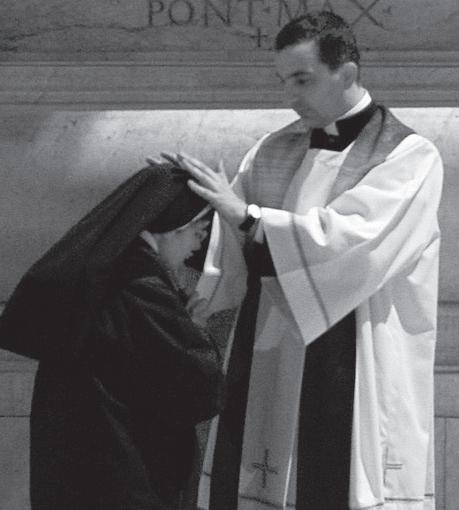
“Over the last 30 years, a large part of our faithful have left the country and, unfortunately, emigration continues. Only God knows what the future of the church in our country will be, but we believe that if we remain faithful to the Christian vocation, we will have a bright future,” the archbishop said.
The Pope said the desire of Catholics to seek a better life for themselves and their families is natural, but it also places pressure on the Catholics who remain in Iran. “As shepherds of your flocks, you must help the faithful who remain in Iran and encourage them to stay in touch with members of their families who have chosen a different fate,” the Pope told the bishops.
Point Man: How a Man Can Lead His Family
$21.95 + P/P
Reviewed by Mark ReidyIN December last year, Archbishop Barry Hickey named the growing absence of fathers as the biggest family and social problem that faces society today.
It is “…bigger than anger, aggression, alcohol, drugs, crime and under-achievement by children”, he lamented, “because it is the biggest single contributor to all of them”. His words summed up everything I have experienced in almost two decades of working in the welfare field and explains why I felt so drawn to Point Man
As a Pastor in the US in the 1980s, author Steve Farrar began to recognise that men’s failure to embrace the role that God had called them to, was the force behind 90 per cent of his counselling issues.
He recognised, as does our insightful Archbishop, that the inability of fathers to fulfil their role as spiritual leaders of the family is the key to the moral and social unravelling that we see today.
A “Point Man”, Farrar explains, is the man who walks in the front of a patrol in a war zone. His role is to be alert to any danger so that he can forewarn those who follow. Today’s family is at war, he states emphati-
cally, and it is necessary for fathers to be more vigilant than ever in protecting their families from the ravages of, amongst other things, divorce, prostitution, drug addiction, teen pregnancy, abortion, sexual promiscuity and suicide.
However despite the increasing casualty list of those falling victim to such problematic behaviours, Farrar is quick to acknowledge that children can also be robbed of their full potential in more subtle ways.
An emotionally absent father can be as devastating as a physically absent one, he claims, and it is essential that moral strength is consciously and constantly built into a child’s life from an early age so that are equipped to weather the storms of the teenage years.
This strengthening is the responsibility of the father and can only occur if he is physically and emotionally present.
The author believes that it is very easy for men to become inadvertently alienated from their wives and children under the guise of work and other “positive pursuits”, however it is vital, he writes, that men become passionate in their desire to become better fathers than they are attorneys, salesmen, foremen, pastors or doctors.
Farrar intermingles his insights and experience with just the right balance of humour, anecdotes, quotes and the wisdom of professionals, to produce an easy read that was effective, for me at least, in producing an awareness of how far I had drifted from my God-appointed role.
Farrar focuses attention on the importance of a father’s commitment to a mother and sees this as the foundation of effective parenting. He also stresses the need to be eternally vigilant to the temptations of adultery and how easily and unexpectedly relationships can be hijacked in this way.
However after spelling out the pitfalls and dangers that stalk any relationship, Farrar provides the reader with suggestions on how men can become “spiritual self-starters” which he says is vital in a world that will pull men in many directions.
He offers a plan for an effective and practical prayer life that is compatible to the busyness of the life, which, as a father of three, he clearly understands. He also provides a study and discussion guide for those who desire to explore this issue deeper, whether individually or as a group.
Farrar is distinctly American in his approach, especially with his sporting analogies and references, but the messages he portrays are still clear. He is passionate in his desire to inspire men to become better husbands and fathers and he effectively outlines the spiritual, emotional and physical rewards that come to the families of men who embrace their God-given roles. This is a book that addresses the most important issue that faces our society today and one that I hope will be seen by many fathers, and those who desire to be fathers, as possible. I would be surprised if any one could read this book and not become a better man for it.
You know they won’t win, but who cares

Valkyrie (MA)
Reviewed By Harry ForbesNEW YORK (CNS) - How, some might wonder, could Adolf Hitler convince an entire nation to support his destructive ambitions so blindly, with no regard for the most basic morality?
The answer is that not all Germans did, as the World War II espionage thriller Valkyrie (MGM/United Artists) effectively demonstrates. The film is a generally well-made and engrossing re-creation of the true-life plotthe last of many - to assassinate Adolf Hitler (David Bamber) and take over the government of a nearly defeated Germany in 1944.
The title derives from the code word for Hitler’s emergency plan that would have the army reserves stabilise the government in the event of his death. (The story has already had several American and German cinematic tellings.)
Though in early scenes we see an unsuccessful attempt on the Fuhrer’s plane by Major General Henning von Tresckow (Kenneth Branagh), whose bomb - cleverly camouflaged as Cointreau bottles - is loaded just before
takeoff, Valkyrie concentrates mainly on the efforts of Colonel Claus von Stauffenberg (Tom Cruise) and a group of other disenchanted army officers to succeed where he failed. Stauffenberg asserts, “Hitler is not only the archenemy of the entire world, but the archenemy of Germany,” and feels it is his duty not only to save the country, but most especially, the human lives - Jews, Russians and POWs - at risk of slaughter.
Among those active participants in the German Resistance movement or those more passively complicit are General Friederich Olbricht (Bill Nighy), General Erich Fellgiebel (Eddie Izzard), General Friederich Fromm (Tom Wilkinson), General Ludwig Beck (Terence Stamp) and Major Otto Ernst Remer (Thomas Kretschmann).
Stauffenberg will deposit a rigged suitcase at a meeting with Hitler at his East Prussian headquarters, Wolf’s Lair, and leave at the appropriate moment, while the other conspirators implement the coup in Berlin. At least that’s how it’s all supposed to work.
The film was handsomely shot in Germany, at many of the actual locations, and director Bryan Singer maintains a taut, suspenseful pace. But though one obviously roots for the good guys to win, Christopher McQuarrie and Nathan Alexander’s script doesn’t quite
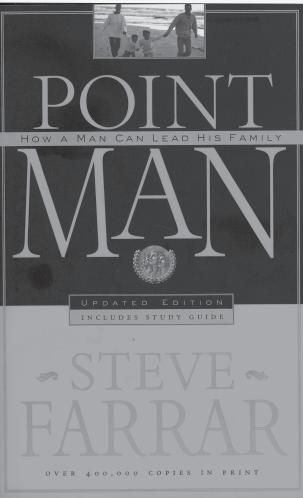
succeed in making you care much about the individual characters, even Stauffenbergwho desperately worries about his devoted wife (Carice van Houten) and small children as the conspiracy threatens to unravel - jeopardising their lives.
Suspense is also inescapably diluted by the historical foreknowledge that the plot will not succeed. The performances are all strong, though it must be said that, while Cruise cuts a dashing figure in his eye patch and uniform, his All-American can-do determination seems at odds with the more imposing gravitas of his estimable English and European colleagues. Hokey or not, the cast perhaps should have adopted consistent German accents.
Refreshingly, objectionable elements - in terms of sex, language and even violence - are either nonexistent or minimal, making this acceptable for older teens and up, especially in light of its historical significance. Caveats aside, this is an exciting story about moral responsibility and bravery in the face of evil.
It’s also another big step in the comeback of Tom Cruise, who, after his 2006 public dismissal from his $10 million-a-year studio deal at Paramount Pictures, stole the show with his cameo in Ben Stiller’s acidic satire of Hollywood’s self-obsessed nihilism, Tropic Thunder, last year.
NEW YORK - The title calls it right, for Bride Wars (Fox 2000/ Regency) is an amiable - if all too predictable - romantic bauble about longtime devoted pals who have dreamt since childhood of June weddings at New York’s Plaza Hotel, but then, as adults, have a falling-out just before their much-anticipated nuptials there. Kate Hudson is Liv, a high-powered corporate lawyer and intense control freak, and Anne Hathaway is meek schoolteacher Emma, a perennial pushover under the thumb of abrasive colleague Deb (Kristen Johnston) who, improbably, becomes Emma’s maid of honour. Liv and Emma hatched their romantic plan as kids from New Jersey, after they attended a wedding at the famed landmark. Now, with live-in boyfriends Daniel (Steve Howey) and Fletcher (Chris Pratt) having proposed, the path is ready for their dream to come true. Daniel is a calming influence on the Type-A Liv, and loves her for all her faults, but Fletcher is far less understanding about Emma’s escalating marital jitters.
Liv’s brother, Nate (Bryan Greenberg), is clearly sweet on his sister’s friend, whom he’s known all his life, but Emma seems only dimly aware of his interest. When the assistant to highpowered wedding planner Marion (Candice Bergen in an amusing bit) screws up the dates, the ladies are - horrors! - forced to have their weddings in the same room. Before long, Liv and Emma are hell-bent on sabotaging each other’s weddings. Hudson (who also produced) and Hathaway are in good comic form, and there’s some poignancy beneath the slapstick, as orphaned Liv’s longing for her parents figures in the plot, too.
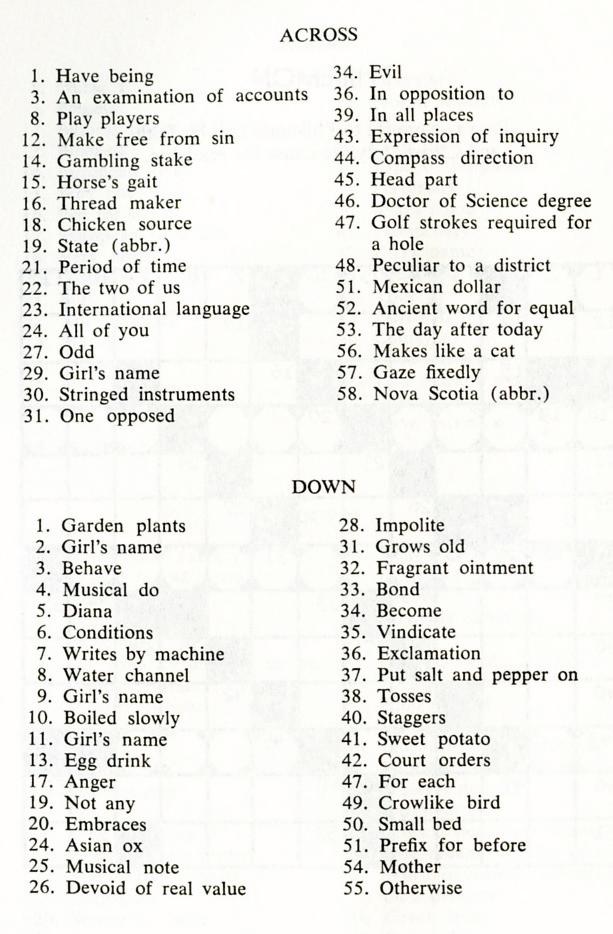
KIDS BITZ
OF THE WEEK will receive a free gift from the Record Bookshop. All you need to do is post or email in a drawing, poem or colouring picture. please post or email
Justine Stevens, The Record, PO Box 75 Leederville WA 6902 or email: production@therecord.com.au
Elizabeth, 6 years from Kiara, is Our Artist of the Week.

Crossword taken from Bible Quotations Crossword Puzzles.
Available by order from The Record Bookshop 9227 7080.

What God told Joshua to tell his people when they were defeated
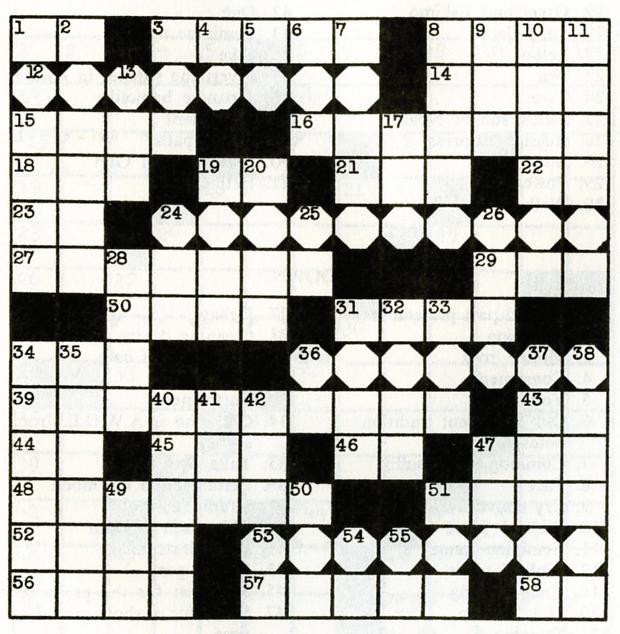

St Eystein Erlandsson
Eystein Erlandsson (d. 1188) was appointed as the second archbishop of Nidaros in 1157. One of his most important charges was to update the Norwegian church policies to reflect the work of the church in Western Europe. He also finished an expansion of the cathedral of Christ Church in Nidaros.
In 1164, Eystein anointed and crowned Magnus Skakke at the first royal coronation ceremony in Norway.
In order to set an example of celibacy for the clergy of Norway, Eystein founded communities of Augustinians canons regular.
He had to escape Norway to flee from the persecution of Sverre, who wanted to take over the throne, and who did not like Eystein. He returned two years later.
He was devoted to St. Thomas Becket, and wrote a book called “The Passion and Miracles of the Blessed Olaf.”
We remember him on January 26.
Can you unscramble all of the following books of the Bible correctly? 1. seuxdo, 2. haihenme, 3. sheert, 4. loej, 5. themwat, 6. snorma, 7. sutti 8. reept
Answer: 1. Exodus, 2. Nehemiah, 3. Esther, 4. Joel, 5. Matthew, 6. Romans, 7. Titus, 8. Peter.
BIBLE TRIVIA:
Which book of the Bible comes just before Jonah, and which book comes right after Jonah?
Answer: Before, Obadiah; after, Micah.
9. Where did Jesus die?
Jesus died at a place ominously called Golgotha, which is Aramaic for “skull.” Its exact location is widely disputed. Many scholars believe that the present-day Church of the Holy Sepulcher marks the true site of Golgotha.
10. Where was Jesus buried?
The rock-cut Garden Tomb near Gordon’s Calvary is thought by some to be the site of Jesus’ burial, but it is possible the tomb is somewhere under the presentday Church of the Holy Sepulcher in Jersusalem.
11. Jericho - the world’s oldest city
A fine spring waters Jericho, which was first occupied in 9000 BC. It was an oasis in the Jordan Valley and was called the “City of the Palms” in the Bible. The Israelites captured it under Joshua in the famous incident when its walls collapsed. It lay as a sparsely inhabited ruin for more than 1,000 years, until it was rebuilt by King Herod.
12. Cavernous caves
Caves are abundant in Palestine. Most caves were formed by the action of underground water. After the water table receded, the dry caves became useful as dwelling places (Gen 19:30), hiding places (1Sa 22:1), burial places (Gen 23), and storage.
13. How fast can a camel go?
People walking on foot could travel about 15 miles a day in Bible times. Donkey caravans could travel about 20 miles a day. Fully loaded camel caravans could cover 18 to 20 miles a day. But someone riding a fast camel could travel much farther up to 70 miles a day.
14. Masada
One of the most spectacular sites in the Holy Land, the fortress of Masada sits on the flat top of a high rock bluff above the wilderness floor near the Dead Sea. The city began as a fortified Jewish community in the second century BC. The Romans captured it in AD. 6. Then, in AD 66, the Jews revolted and reclaimed it.
15. Climate
The climate of the Mediterranean lands is somewhere between temperate and tropical. Winters are wet and cool; summers are hot and dry. Going south, the annual rainfall lessens until arid desert conditions prevail. There can be great variations in annual rainfall from place to place, and the constantly moving desert margin overtakes certain areas from time to time, plunging them in to drought and famine. The Bible speaks frequently about these extreme conditions. We read of dry years and famine, flooding rains, and years of plenty. The Galilee area of Palestine enjoys the highest annual rainfall and the richest soil in the region.
Panorama entries must be in by 12pm Monday. Contributions may be emailed to administration@therecord.com.au, faxed to 9227 7087, or mailed to PO Box 75, Leederville, WA 6902. Submissions over 55 words will be edited. Inclusion is limited to 4 weeks. Events charging over $10 will be a put into classifieds and charged accordingly. The Record reserves the right to decline or modify any advertisment.
Wednesday January 28
MEMORIAL MASS
10.30am at Church of the Assumption, Mandurah, to commemorate the 50th Anniversary of the tragic drowning in Mandurah of Fr Joseph O’Hara, and Presentation Sisters: Patricia Lynch, Finbarr Tarrant, and Joachim Delahunty. All welcome. Enq: Sr Clare Sciesinski pbvm 9384 5433.
Saturday January 31
AN EMMAUS EXPERIENCE ANIMATED
9am to 4pm at L J Goody Bioethics Centre by Fr Erasto Fernandez SSS. Enq: Gertrude 0411 262 221.
Sunday February 1 to Wednesday February 4
EUCHARISTIC MYSTERIES
9.30am February 1 at Our Lady’s Shrine Bullsbrook, 6pm February 1, at St Jerome Spearwood, 7pm February 2 at St Bernadette Glendalough, 7.30pm February 3 at Sacred Heart Mundaring, 9am February 4 at All Saints Greenwood, 11.45am February 4 at St Thomas, Claremont all sessions with Fr Erasto Fernandez SSS. Enq: Pat 9375 2837 after hours.
Sunday February 1
DIVINE MERCY
1.30pm at St Joachim’s Pro-Cathedral, Cnr Shepperton Road and Harper Street, Victoria Park. Rosary and Reconciliation, and sermon by Fr Andre Maria FFI on Our Lady of Lourdes followed by Divine Mercy Prayers and Benediction. Refreshments followed by Video/DVD on Surrender is not an option Part I with Fr John Corapi. Enq: John 9457 7771 or Linda 9275 6608.
Monday February 2
NOVENA TO OUR LADY OF LOURDES
7pm at Holy Trinity Church, 8 Burnett Street, Embleton. Holy Mass followed by Novena devotions, procession, hoisting Our Lady of Lourdes Banner. Preacher Fr J Carroll CSsR. Conclude with get-together. Bring Plate. Feast day 11 February, 7pm Mass followed by candlelight procession to Grotto, conclude with farewell for Fr Carroll. Enq: Office 9271 5528 or George 9272 1379.
Monday February 2 to Wednesday February 4 FEAST OF OUR LADY OF LOURDES NOVENA AND MASS IN THREE PARISHES
7pm, 2 February at All Saints Catholic Church, 7 Liwara Place, Greenwood. Mass celebrated by Fr Vinh Dong PP, followed by Novena devotions, Rosary procession and Benediction. Bring a plate. 3 February at 7pm Novena devotions, Rosary, blessing of children and Benediction. 4 February at 7pm Novena devotions, Rosary, blessing of children and Benediction. Enq: 9447 6225.
Thursday February 5 to Saturday February 7 FEAST OF OUR LADY OF LOURDES NOVENA AND MASS IN THREE PARISHES
7pm, 5 February at St Peter’s Catholic Church, Wood Street, Inglewood. Mass celebrated by Fr Albert Saminedi, followed by Novena devotions, Rosary procession and Benediction. Bring a plate. February 6, 7pm Mass followed by Novena devotions, Rosary and Benediction. February 7, 6pm Vigil Mass, Novena devotions, Rosary, blessing of elderly and Benediction. Enq: 9271 3289.
Thursday February 5 to Sunday February 8
EUCHARISTIC MYSTERIES
9am, February 5 at St Gerard, Mirrabooka, 7pm February 5 at St Bernadette, Port Kennedy, 8.45am February 6 at Sacred Heart, Thornlie, 7pm February 6 at Star of the Sea Cottesloe, 9am February 7 at Infant Jesus Morley, 6.30pm February 7 and 8 February at Our Lady of the Missions, Whitfords. All sessions with Fr Erasto Fernandez sss. Enq: Pat 9375 2837 after hours.
Friday February 6
PRO-LIFE WITNESS
9.30am at St Brigid’s Midland, Mass, followed by Rosary procession and prayer vigil at abortion clinic, led by the Franciscan Friars of the Immaculate. Enq: Helen 9402 0349.
Saturday February 7
WITNESS FOR LIFE
8.30am at St Augustine’s, Gladstone Road, Rivervale, Mass, followed by Rosary procession and prayer vigil at abortion clinic, led by Fr Paul Carey SSC. Enq: Helen 9402 0349.
Saturday February 7
DAY WITH MARY
9am to 5pm at St. Pius X Church, Ley Street and Paterson Street, Manning, 9am Video on Fatima. Day of prayer and instruction based upon the Fatima message. Reconciliation, Holy Mass, Eucharistic Adoration, Sermons on Eucharist and Our Lady, Rosaries, Procession of the Blessed Sacrament and Stations of the Cross. BYO lunch. Enq: Franciscan Sisters of the Immaculate 9250 8286.
Friday February 6
THE ALLIANCE, TRIUMPH AND REIGN OF THE UNITED HEARTS OF JESUS AND MARY
5.15pm at St Bernadette’s Church, Glendalough, confessions, 5.45pm Mass, followed by exposition of the Blessed Sacrament; hourly Rosaries, hymns and reflections etc throughout the night. Vigil concludes with midnight Mass in honour of the Blessed Virgin Mary. Enquiries: Fr Doug Harris 9444 6131 or Dorothy 9342 5845.
Sunday February 8
FEAST OF OUR LADY OF LOURDES ST CATHERIN E’S CATHOLIC CHURCH, GINGIN
12noon lunch BYO, 1pm Holy Rosary, Exposition, Hymns, Benediction and Blessing of the Sick; 1.30pm Procession; 2.30pm Mass at the Grotto; 3.30pm tea provided. Pick up points, St Joachim’s Pro-Cathedral, Maddington and Girrawheen Parishes. Bookings: Francis 9459 3873 or 0404 893 877 confirm by 1 February. Cost, $15 per person return. Enq: Sheila 9575 4023 or Fr Paul 9571 1839.
Sunday February 8 to Wednesday February 11
FEAST OF OUR LADY OF LOURDES NOVENA AND MASS IN THREE PARISHES
6pm, 8 February at Our Lady of Mercy Catholic Church, Girrawheen Avenue, Girrawheen, Mass celebrated by Fr Vallis and Fr Fernandez followed by Novena devotions, Rosary procession and Benediction. February 9, 7pm Novena devotions, Rosary and Benediction. February 10, 7pm Novena devotions, Rosary, blessing of the sick and Benediction. February 11, 7pm, Feast of Our Lady of Lourdes, Mass, candlelight procession and Benediction. Burning of petitions. Bring a plate. Enq: Jim 0411 615 239 or 9342 6049.
Friday February 20 to Sunday February 22
MARRIAGE ENCOUNTER
8pm at Safety Bay, a weekend for married couples. Take time out of your busy schedule, to invest in your most precious asset; Your Marriage! This is a unique opportunity to recharge your relationship batteries, refocus on each other and fall in love all over again! Few place still available. Enq: Joe or Margaret, WABookings@wwme. org.au or 9417 8750.
Saturday February 21
INNER HEALING RETREAT FOR COUPLES
9am to 5pm at Holy Family Church, Lot 375 Alcock Street, Maddington led by Vincentian Fathers. Prior registration required and is free. Lunch and tea provided. Enq: 9381 5383 or vcparackal@rediffmail.com.
Saturday February 28
INNER HEALING RETREAT FOR YOUTHS
9am to 5pm St Aloysius Church, 84 Keightlely Road, West Shenton Park, prayers for inner and physical healing led by the Vincentian Fathers. Prior registration required and is free. Lunch and tea provided. Enq: vcparackal@rediffmail.com or 9381 5383.
Saturday February 28
ST PADRE PIO DAY OF PRAYER
8.30am at St Peter the Apostle, 91 Wood Street, Inglewood. St Padre Pio DVD, 10am exposition of the Blessed Sacrament, Rosary, Divine Mercy, silent Adoration
and Benediction. 11am Mass, using St Padre Pio liturgy, celebrant Archbishop Hickey, any attending priest welcome to concelebrate. Confessions available. BYO lunch. Tea and coffee provided. Enq: Des 6278 1540.
Friday March 6 to Sunday March 8
SEPARATED, DIVORCED, WIDOWED
7pm at Epiphany Retreat Centre, Rossmoyne, Beginning Experience is running a programme designed to assist and support people in learning to close the door gently on a relationship that has ended in order to get on with living. Enq: Helen 6246 5150 or Maureen 9537 1915.
Every Sunday
DIVINE MERCY PRAYER AS NOVENA
3pm St Aloysius Church, 84 Keightley Road, West Shenton Park. An opportunity for all to gather once a week and say the powerful Divine Mercy, Eucharistic Adoration, healing prayers followed by Holy Mass at 4pm. Enq: 9381 5383.
Every 1st Thursday of the Month
PRAYER AND MEDITATION SERVICE USING SONGS FROM TAIZE
7.30pm at Our Lady of Grace, 3 Kitchener Street, North Beach. The service is a prayerful meditation in which we sing beautiful chants from Taize together, spend time in prayerful, meditative silence, bathed in candlelight reflecting upon themed readings. Enq: Beth 9447 0061.
Every First Friday and Saturday of Month COMMUNION OF REPARATION – ALL NIGHT VIGIL
7pm Friday at Corpus Christi Church, Mosman Park, 47 Lochee Road. Mass with Fr Bogoni and concluding with midnight Mass. Confessions, Rosaries, prayers and silent hourly adoration. Please join us for reparation to Two Hearts according to the message of Our Lady of Fatima. Enq: Vicky 0400 282 357.
Every First Friday
HOLY HOUR FOR VOCATIONS TO THE PRIESTHOOD AND RELIGIOUS LIFE
7pm at Little Sisters of the Poor Chapel, 2 Rawlins Street, Glendalough. Mass celebrated by Fr Saminedi. 7.30pm, Adoration with Fr Don Kettle. All welcome. Refreshments provided.
Every Sunday
LATIN MASS KELMSCOTT
The Latin Mass according to the 1962 missal will be offered every Sunday at 2pm at the Good Shepherd Parish, 40-42 Streich Avenue, Kelmscott, with Rosary preceding. All welcome.
Every 4th Sunday of the Month HOLY HOUR PRAYER FOR VOCATIONS TO THE PRIESTHOOD AND RELIGIOUS LIFE
2-3pm at Infant Jesus Church, Wellington Road, Morley. The hour includes exposition of the Blessed Sacrament. Let us implore God to pour an abundance of new life into our Church, open our hearts and those of the young people of the world to hear His Word for us now, today. All welcome! Enq: 9276 8500.
Every Sunday
PILGRIM MASS
2pm at Shrine of Virgin of the Revelation, 36 Chittering Road, Bullsbrook with Rosary and Benediction. Reconciliation is available in Italian and English. Anointing of the sick, second Sunday during Mass. Pilgrimage in honour of the Virgin; last Sunday of month. Side entrance and shrine open daily between 9am and 5pm. Enq: 9447 3292.
Every Monday and Tuesday
ADVENTURES IN EXODUS – 9 WEEK STUDY
Commencing 9.30am to 11.30am, February 2 and 7.30pm to 9.30pm, February 3 at Church of St Emilie, 174 Amherst Road, Canning Vale. New and exciting study into the heart of the Bible - ‘Called To Freedom’ is also our story of what God calls us to be. Free. Limited places. Enq: Dominic celestialorchids@gmail.com, 6253 8041 or 0447 053 347.
Every Tuesday NOVENA TO GOD THE FATHER
7.30pm St Joachim’s Parish Hall, Shepperton Road, Victoria Park; incorporating a Bible teaching, a Perpetual Novena to God the Father and Hymns. Light refreshments will follow. Bring a Bible and a friend. Enq: Jan 9323 8089.
Every Monday
ADORATION, RECONCILIATION AND MASS 7pm at St Thomas, corner Melville and College Roads, Claremont. Exposition of the Blessed Sacrament with Evening Prayer and Benediction, spend 40 minutes quietly before our Lord for the health, faith and safety of yourself and your loved ones; Reconciliation 7.30pm, Mass and Night Prayer 8pm.
Every Thursday
EUCHARISTIC ADORATION
11pm to midnight at Holy Trinity Church, 8 Burnett Street, Embleton. Enq: Office 9271 5528 or George 9272 1379.
Every Friday
EUCHARISTIC ADORATION
9am to 6pm at Holy Trinity Church, 8 Burnett Street, Embleton. Enq: Office 9271 5528 or George 9272 1379.
Every Saturday HOLY SPIRIT OF FREEDOM CHARISMATIC PRAYER MEETING
10.30am to 12.30pm at St Peter the Apostle Church Hall, 91 Wood Street, Inglewood. All are most welcome.
Every Sunday
MUSICIANS AND SINGERS
6pm at the Redemptorist Monastery Church, Vincent Street, North Perth; the Shalomites have been providing the music and singing for over thirty years. We are looking for new members. All interested singers and musicians welcome. Enq: Stephen or Sheelagh 9339 0619.
Every 1st Sunday of Month DIVINE MERCY
Commencing with 3 o’clock Prayer at Santa Clara Parish, Bentley, followed by the Chaplet, reflection and Benediction. All friends and neighbouring parishes invited. Tea and coffee provided. Enq: Muriel 9458 2944.
Every 2nd Wednesday of Each Month CHAPLETS OF THE DIVINE MERCY
7.30 pm at St Thomas More Catholic Church, Dean Road, Bateman. All welcome to a beautiful, prayerful, and sung devotion. Enq: George 9310 9493 home or 9325 2010 work.
Every Thursday
JOURNEY THROUGH THE BIBLE
7.30pm, Acts 2 College of Mission and Evangelisation, Osborne Park. Using The Bible Timeline, The Great Adventure can be studied towards accredited course or for interest. Resources provided. See www.acts2come. wa.edu.au/ or Jane 0401 692 690.
Every Last Saturday of Month NOVENA DEVOTIONS TO OUR LADY OF GOOD HEALTH, VAILANKANNI
5pm at Holy Trinity Church, 8 Burnett Street, Embleton, followed by Vigil Mass at 6pm. Enq: Office 9271 5528 or George 9272 1379.
CALL FOR VOLUNTEERS
Jesuit Volunteers Australia calls for part-time volunteers to respond to the needs of people in the community who live in marginalised circumstances. At the heart of this program is a reflective process, based on Gospel values, which underpins the work of the volunteers. Enq: Kevin 9316 3469 or kwringe@iinet.net.au, www.jss.org.au
MEMORIES OF AFRICA CHOIR
Calling all to come and join this small but vibrant group. Come let us sing and praise God with the African melody and rhythm. Enq: Bibiana, 9451 6602 after 6pm.
ROME (CNA) - L’Osservatore Romano has published some excerpts from an article that will soon appear in La Civilta Cattolica written by Jesuit Father Antonio Spadaro, who warns of the risks of using social networking sites such as Facebook or Myspace, which can submerge users in loneliness and fragile friendships and are inadequate substitutes for the natural desire to be loved.
Fr Spadaro says that on Facebook, “the need to know others and to make oneself known, and the need to experience friendships are ‘serious’ needs that run the risk of confusing superficial and sporadic relationships with friendship; or communication with exhibitionism; or the fact of wanting to know others with voyeurism.
While the difference between the one and the other is radical, an appropriate education in relationships and one’s self-perception is needed in order to see it.”
The Gregorian University professor also explained that Facebook “is in this sense a challenge because as with all social networking platforms, it is both a potential aid for relationships as well as a threat” because relations between human beings are not “a game and require time and direct knowledge.”
Fr Spadaro later pointed out that “relationships on the internet are necessarily always shaky if they are not anchored in reality. In some cases the desire to have many contacts in Facebook and thus ‘collect’ friends … becomes a challenge to loneliness and to the desire to feel and appear popular. In effect, the desire to appear extroverted, sought out, and in other words, loved, cannot be underestimated. Having many friends means showing others you are socially attractive,” he said. Likewise, “sometimes one’s own profile aids in ‘fishing for’ potential ‘friends,’ and the motives for this can be varied: from the most legitimate to the least plausible and acceptable. It is obvious, on the other hand, that the more the number of ‘friends’ grows, the more Facebook risks losing its meaning and becomes a simple directory that is merely more technologically advanced.”
Third Sunday in Ordinary Time
There is a certain urgency in today’s Gospel as Jesus calls His first disciples – Andrew and Simon, James, and John. Each one follows Jesus immediately, unhesitatingly abandoning nets and boats and father and fellow-workers. To what is Jesus calling me – at this moment, in these circumstances? What will I need to abandon in order to follow Him?
For further information on how stewardship can build your parish community, call Brian Stephens on 9422 7924.
kingdom near
Alternatively in this Pauline Jubilee Year THE CONVERSION OF ST PAUL, APOSTLE Feast Wh Acts 22:3-16 Who are you, Lord? [Alt Acts 9:1-22 Go into the city]
Ps 116:1-2 Praise the Lord
1Cor 7:29-31 Old world passing
Mt 16:15-18 Proclaim Good News
26 M AUSTRALIA DAY
Wh Isa 32:15-18 A peaceful home
Ps 84:9-14 A voice of peace
1Cor 12:4-11 One Spirit, one Lord [Alt. Rom12:9-13 Profound respect]
Mt 5:1-12 Sources of blessing [Alt. Lk 12:22-32 You are worth more]
27 T ST ANGELA MERICI, VIRGIN (O)
Gr Heb 10:1-10 God, here I am!
Ps 39:2.4.7-8.10-11 God heard my cry
Mk 3:31-35 Brother, sister, mother
28 W ST THOMAS AQUINAS, PRIEST, DOCTOR OF THE CHURCH (M) Wh Heb 10:11-18 Same sacrifices
Ps 109:1-4 A priest forever Mk 4:1-20 Not understand?
29 Th Gr Heb 10:19-25 Love and good works Ps 23:1-6 A pure heart Mk 4:21-25 Light under the bed?
30 F Gr Heb 10:32-39 We keep faithful Ps 36:3-6.23-24.39-40 Trust in the Lord Mk 4:26-34 The harvest is ready
31 S ST JOHN BOSCO, PRIEST (M) Wh Heb 11:1-2.8-19 People of faith Lk 1:69-75 Love fulfilled Mk 4:35-41 We are going down?
■ NEEDED
Female overseas student, 23 yo, with 3 mth old baby, needs accomm and support with a family, preferably north of the river for approx. 12 mths. Ph Lydia at Pregnancy Assistance, 9328 2929.
■ AVAILABLE
Willetton single room for female student in family home, on bus to Curtin or Murdoch uni.
$150.00 Ph: 0416 815 804.
■ THE PAINTERS REG NO 5846
"We take the pain out of painting” Residential & Commercial. Phone Jim: 0412 123 630
■ BRICK RE-POINTING
Phone Nigel 9242 2952.
■ PERROTT PAINTING PTY LTD
For all your residential, commercial painting requirements. Phone Tom Perrott 9444 1200.
■ BRICKLAYING
20 years exp. Quality work. Ph 9405 7333 or 0409 296 598.
■ PICASSO PAINTING
Top service. Phone 0419 915 836, fax 9345 0505.
■ REPAIR YOUR LITURGICAL BOOKS
General repairs to books, old bibles & missals. 2ndhand Catholic books avail. Tydewi Bindery 9293 3092.
■ CATHOLIC COUNSELLING
Call Jole (M. Counselling, M. Theology, B Bus.) Catholic Counsellor (Aust Counselling Assoc. Member). Holistic (Mind-Body-Spirit) approach to issues of anxiety, relationship, faith, anger, addiction, grief, trauma etc. Individual, couples, family and children. Contact: 0418 345 356 jole.counselling@gmail.com
FURNITURE REMOVAL
■ ALL AREAS
Mike Murphy 0416 226 434.
■ CHRISTIAN SINGLES
Widowed, divorced or never married. All age groups. Meet-for-Drinks, Dinner Seminars and Individual Dates. Phone 9472 8218. Tues-Fri 10am - 6pm. www.figtrees.com.au
■ KINLAR VESTMENTS
‘Modern meets tradition.’ Quality hand-made & decorated. Vestments, altar cloths, banners. Vickii Smith Veness. 9402 8356 or 0409 114 093.
■ CATHOLICS CORNER
Retailer of Catholic products specialising in gifts, cards and apparel for baptism, communion and confirmation. Ph: 9456 1777. Shop 12, 64-66 Bannister Road, Canning Vale. Open Mon-Sat.
■ RICH HARVEST – YOUR CHRISTIAN SHOP
Looking for Bibles, CDs, books, cards, gifts, statues, baptism/communion apparel, religious vestments, etc? Visit us at 39 Hulme Court (off McCoy St), Myaree, 9329 9889 (after 10.30am Mon to Sat). We are here to serve.
■ OTTIMO
Shop 108 TRINITY ARCADE (Terrace Level) Hay St, Perth Ph 9322 4520. Convenient city location for a good selection of Christian products/ gifts. We also have handbags, fashion accessories.Opening hours Monday-Friday 9am-6pm.
EFFECTIVE LEGAL, family owned law firm focusing on property settlements and wills. If you are buying, selling or investing in property, protect your family and your investment, contact us on (08) 9218 9177. FOR EVERYTHING FINANCE – Ph. Declan 0422 487 563, www.goalfinancialservices. com.au Save yourself time, money and
English/tutor, primary specialist, reading/writing, spelling and comprehension. Single/group, limit of four. Diagnostic placement test. Maggie 9272 8263 or 0438 946 621
Notice is hereby given that Joanna Lisa Lawson of 6 Sewell Place, Hillarys, WA 6025, being duly authorised by the above named Association intends to apply to the Commissioner for Consumer Protection on 9.02.2009 for the incorporation of The Branches Project Inc. The Association is formed for the purpose of educating, employing and empowering the exploited working poor.




The Dorothy Day story
Rated M (15 years or more)
Duration: 112 Minutes
$ 45.95
■ Reviewed by Mark Reidy
NOT long before her death in 1980, Notre Dame University in Indiana presented Dorothy Day with its Laetare Medal, thanking her for “comforting the afflicted and afflicting the comfortable”. It is these two qualities that stand out in Entertaining Angels, a high quality and powerful biography of the life of a woman whose cause for canonisation is currently underway.
LEAVING MY BELOVED CHILDREN BEHIND
By Takashi NagaiA devoted doctor in Nagasaki, Japan, learns that he has only three years to live when the horrific happens – an atomic bomb is dropped and all of his family are killed, except for his two children. This is the deeply moving true story of a religious man whose faith in God was not shattered by tragedy but continued to seek out what is right.
MORALITY
3 CD set
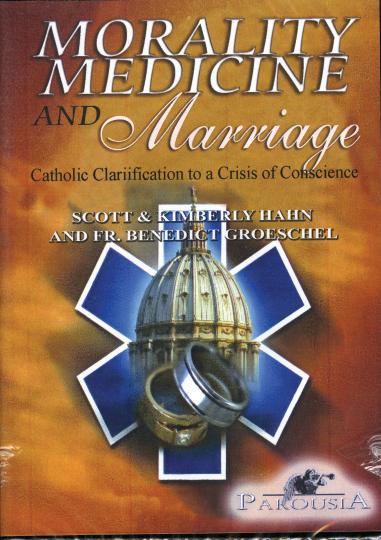

$22.95 + postage
Starring respected actors Moira Kelly and Martin Sheen, the movie successfully captures the passion which drove Day to found and establish the activist newspaper, the Catholic Worker, with an initial budget of 97 cents, while simultaneously turning her own New York apartment into a house of refuge and hospitality for the growing number of people battling the throes of the Great Depression. Her struggle to tackle the immediate hardships of those in her midst, while trying to address the foundational injustices, are summarised in her words, “If you feed the poor you are a saint – if you ask why they are poor you are a Communist. We do both, but we are neither saint nor Communist”.
A pilgrim’s guide to finding answers to life’s deepest questions
Day’s strong will and determination to overcome her own personal battle with the effects of abortion, heartbreak, her loneliness as a single mother and these accusations of Communism in the first half of the film, are followed by her struggle to marry her developing faith with her radical social values in the latter half.
Well acted and professionally produced, Day’s story is both inspirational and challenging as it confronts the universal struggle of being faithful to our call to trust in the providence of God while simultaneously keeping our feet planted within our earthly reality.
The film has encapsulated the life of this passionate, determined and, at times, stubborn woman as best
as it could within two hours. While the movie tends to focus more on Day’s pursuit of social justice and care for the poor, it never separates these qualities from her faith, and will therefore strike a positive chord for those both within and outside the Catholic Church.
In his letter to initiate the canonisation of Dorothy Day just before his death in 2000, Cardinal John O’Connor of New York compared her to Saint Augustine of Hippo who lived a pre-converted life outside the parameters of Church teachings, but who later came to recognise and embrace them.
Entertaining Angels carries a powerful message for all - that we do not have to be perfect to be saintly.
THE CTS NEW CATHOLIC BIBLE STANDARD EDITION

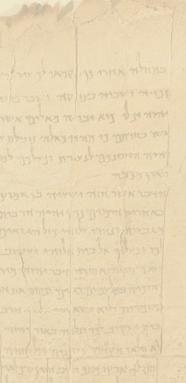

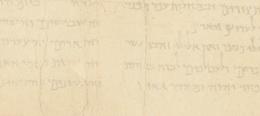 by Archbishop Barry J. Hickey
by Archbishop Barry J. Hickey
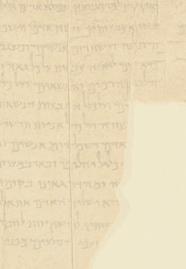 By Archbishop Barry Hickey
By Archbishop Barry Hickey
“The whole Bible points to Jesus as the one who saves, the one who tells us of God’s love and the one we are called to follow and the one who offers eternal life. My hope is that many lives will be changed by meeting Jesus in the pages of the Bible and that they will respond to his call without hesitation or compromise.”
$19.95+postage
Inspiring and Thought Provoking. Addressing an audience of Catholic Doctors, students, clergy and their families, Scott Hahn, Kimberly Hahn and Fr. Benedict Groeschel tackle these questions and many more in the inspiring and thought-provoking new three CD (or cassette) series Morality, Medicine and Marriage: Catholic Clarification to a Crisis of Conscience. Now you can discover how to live a more authentically Catholic life by making your marriage, home and family effective instruments of sanctification for you and your loved ones.
$27.00 + postage
Approved by the Australian Catholic Bishops Conference for use in Australia this twocolour Missal contains the Order of Mass, all the scripture readings and prayers for each Sunday of 2009 in calendar sequence, the complete Easter Liturgy and a treasury of prayers.
$14.95+postage
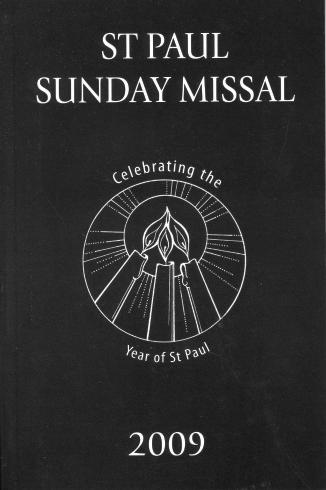
JOSH
Coming to terms with losing a friend
This sensitive story, from a child’s perspective, moves through the pain and emptiness of grief and loss, to the sadness and acceptance of death and burial. It explains not only what happens to the body of a dead person, but also that we will be safe in heaven after we have died. For ages 4-8.
$22.95 + postage


What’s New in the New Catholic Bible
Alongside the Jerusalem and Grail translations authorised by the Vatican for use in the Liturgy:
■ New specially commissioned introductions, one for each book, giving the biblical and historical context
■ New specially commissioned liturgical introductions placing each book of the Bible in the Church’s liturgical year
■ New footnotes following the latest scholarship

■ New marginal references helping you get the most out of each passage.
■ New layout – using clear and modern fonts in easy-toread single-column format
■ New text alterations, replacing the word ‘Yahweh’ with ‘the LORD’ as requested by Benedict XVI for all new Bibles
■ New directories of references for readings used in the Mass and the Liturgy of the Hours, including the fuller two-year cycle for the Breviary.
(Text sizes in this edition: 6.75 pt text (5 pt for footnotes) $59.95+postage
Also Available: Presentation Edn RRP$79.95 and Travel Edn RRP$65.00
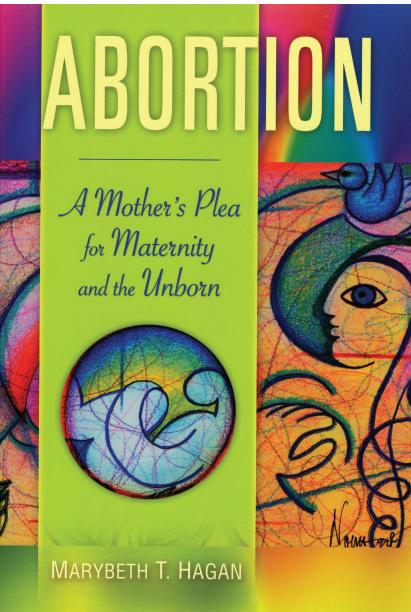 By Marybeth T Hagan
By Marybeth T Hagan
The controversy over abortion is an issue that will not seem to go away in our modern culture. This compelling book is the fruit of one woman, who after years of reflecting on the subject, came to a point in life whereby she could no longer sit on the fence.
$22.95+postage